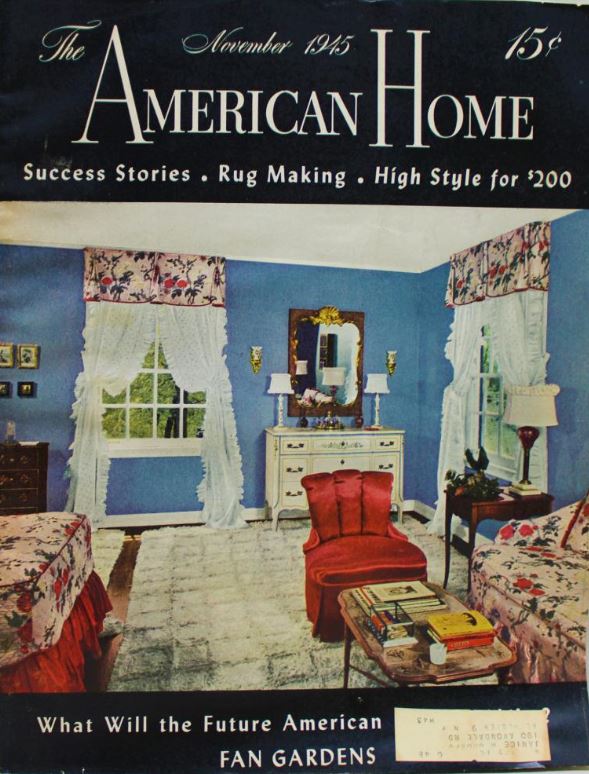 | American Home November, 1949, p. 29 | The Comics Bogey by Reita I. Bean, an article that promises "ways to make this menance less menacing." |
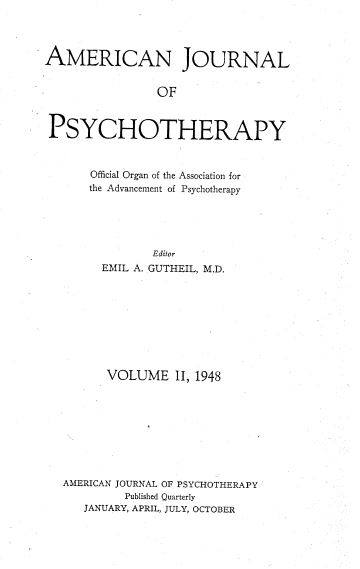 | American Journal of Psychotherapy v2, #3, July, 1948 | Abstract of the symposium "The Psychopathology of Comic Books", held by the Association for the Advancement of Psychotherapy, March 19, 1948. You might call this "The Secret Origin of Dr. Wertham". His articles in Saturday Review of Literature, Ladies' Home Journal and Reader's Digest received greater exposure among the general public, but this article in a professional journal represents one of Dr. Wertham's earliest published anti-comics works, with material by Gershon "Love & Death" Legman as well. Read it! |
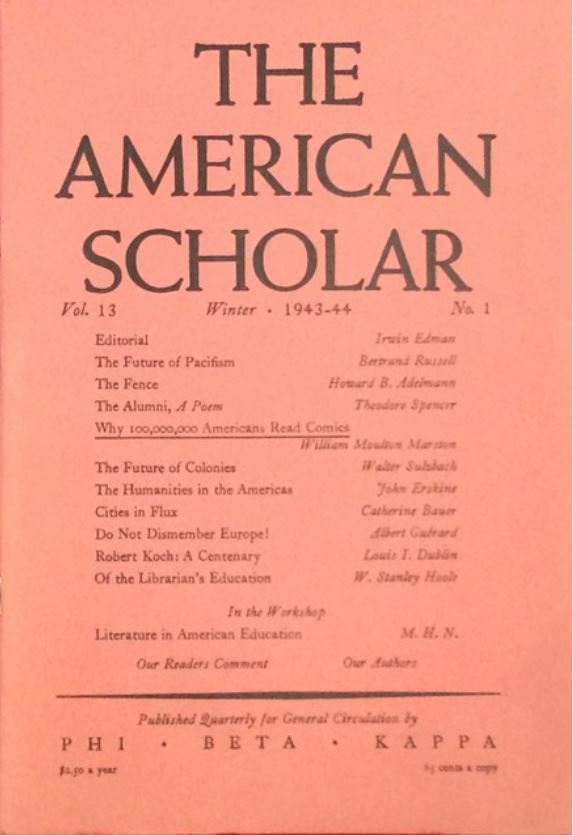 | American Scholar Winter, 1943-1944 | Pro-comics article "Why 100,000,000 Americans Read Comics" by William Moulton Marston |
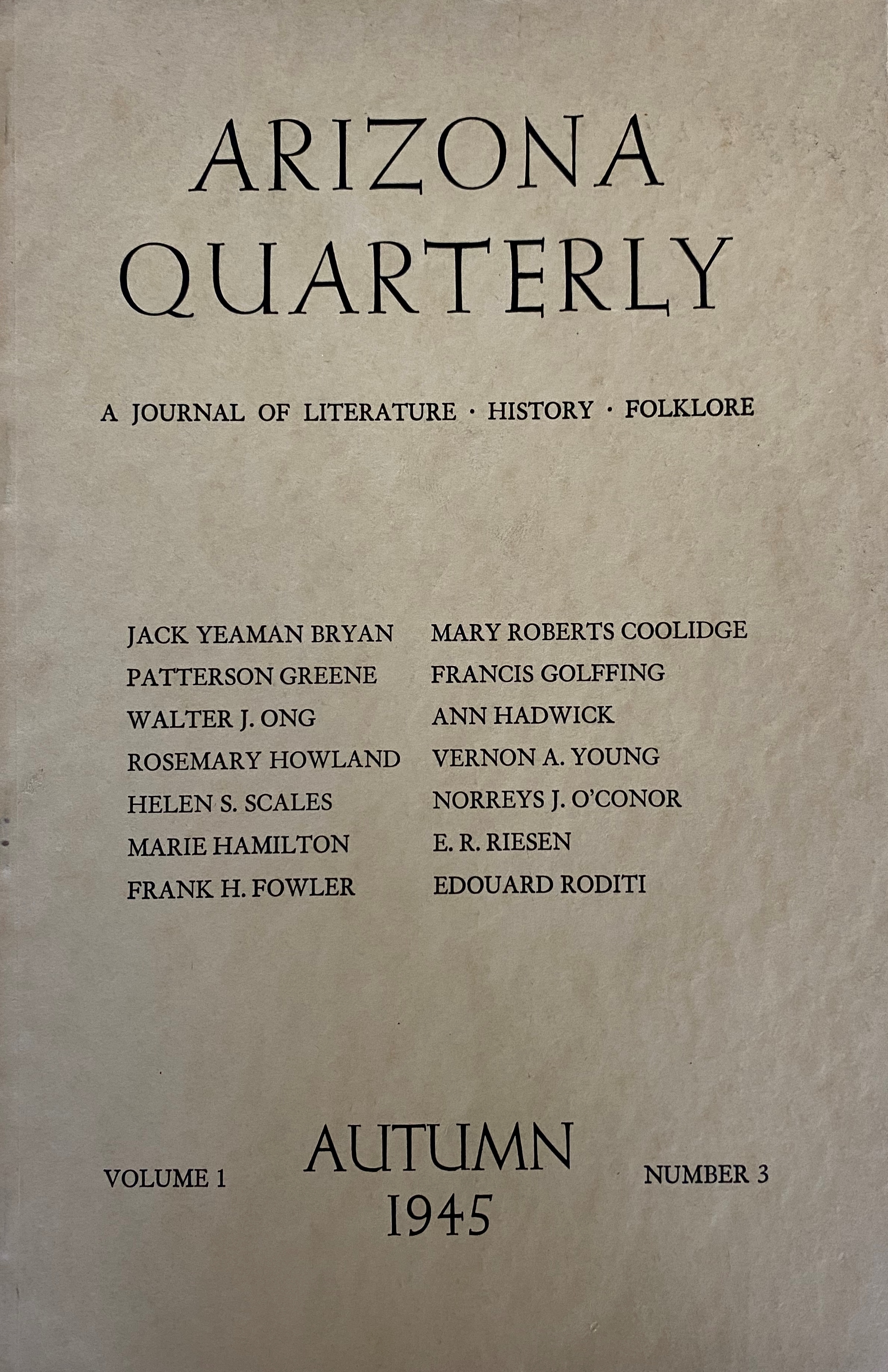 | Arizona Quarterly Autumn, 1945, pp. 34-48 | "Comics and the Super State" by Walter J. Ong |
| | Art Digest May, 1949 | Article on an "exhibit" at the Charles-Fourth Gallery in New York City called "School for Sadism: Folk Art in the Atomic Age". The exhibit was anti-comics propaganda based on Wertham's work. The photos on display were meant to be provocative, such as a photo of young children staring in shock at the True Crime v1#2 image of the needle to the eye. |
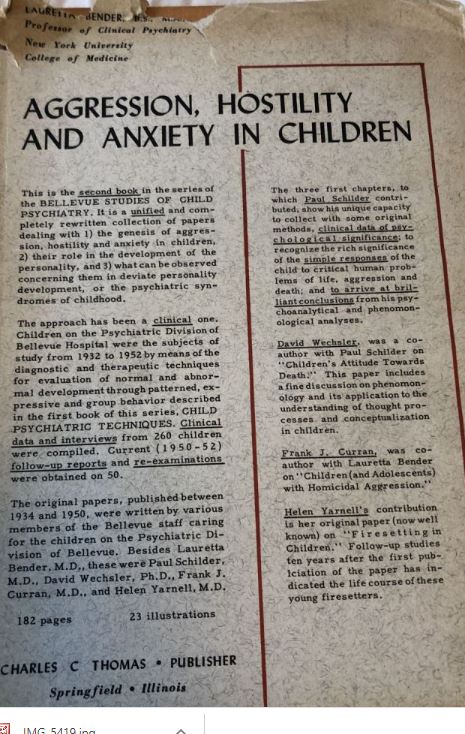 | Bellevue Studies in Psychiatry Vol. 2, 1953 | Book number two in this series, Aggression, Hostility and Anxiety in Children contains only a brief mention of comic books. |
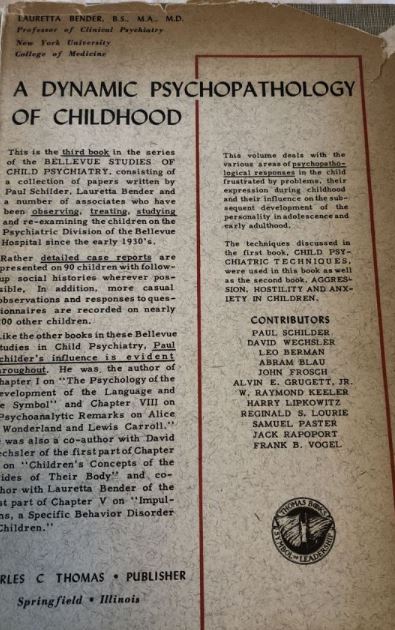 | Bellevue Studies in Psychiatry Vol. 3, 1954 | Book number three in this series, A Dynamic Psychopathology of Childhood contains an entire chapter on comic books. |
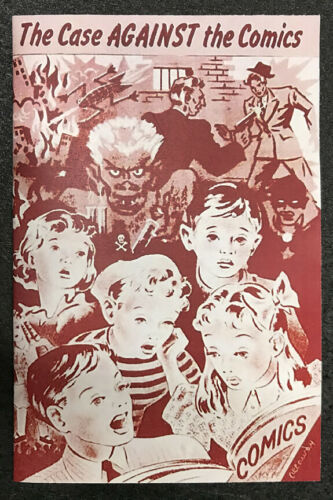 | The Case Against the Comics 1944 | Catechetical Guild pamphlet about the dangers of comic books. |
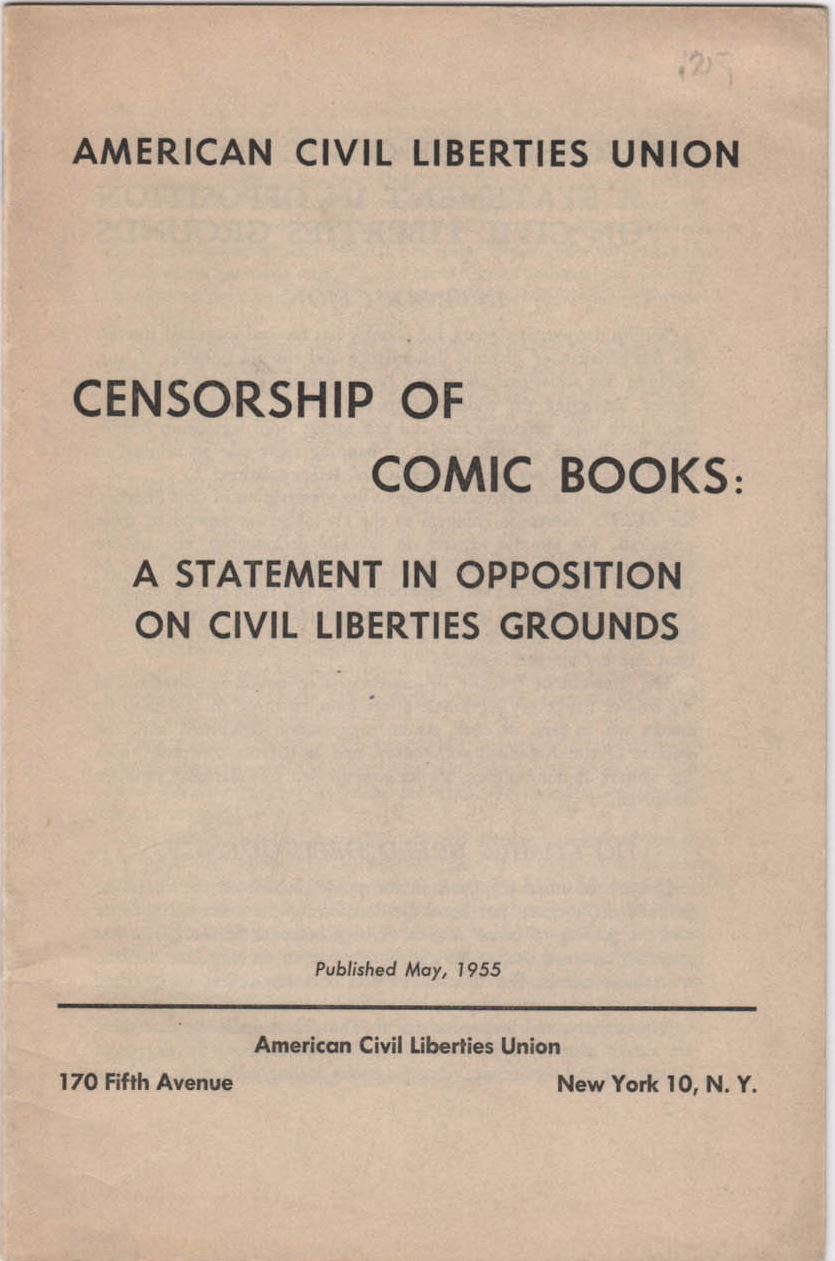 | Censorship of Comic Books: A Statement of Opposition on Civil Liberties Grounds May, 1955 | Anti-censorship pamphlet from the ACLU; includes two short extracts from Wertham writings. |
| | Chicago Daily News May 8, 1940 | First Sterling North article. |
| | Choate News December 8, 1951 | Prep school newspaper with the anti-comics article, "Modern Literature Plagues 20th Century Kiddies" |
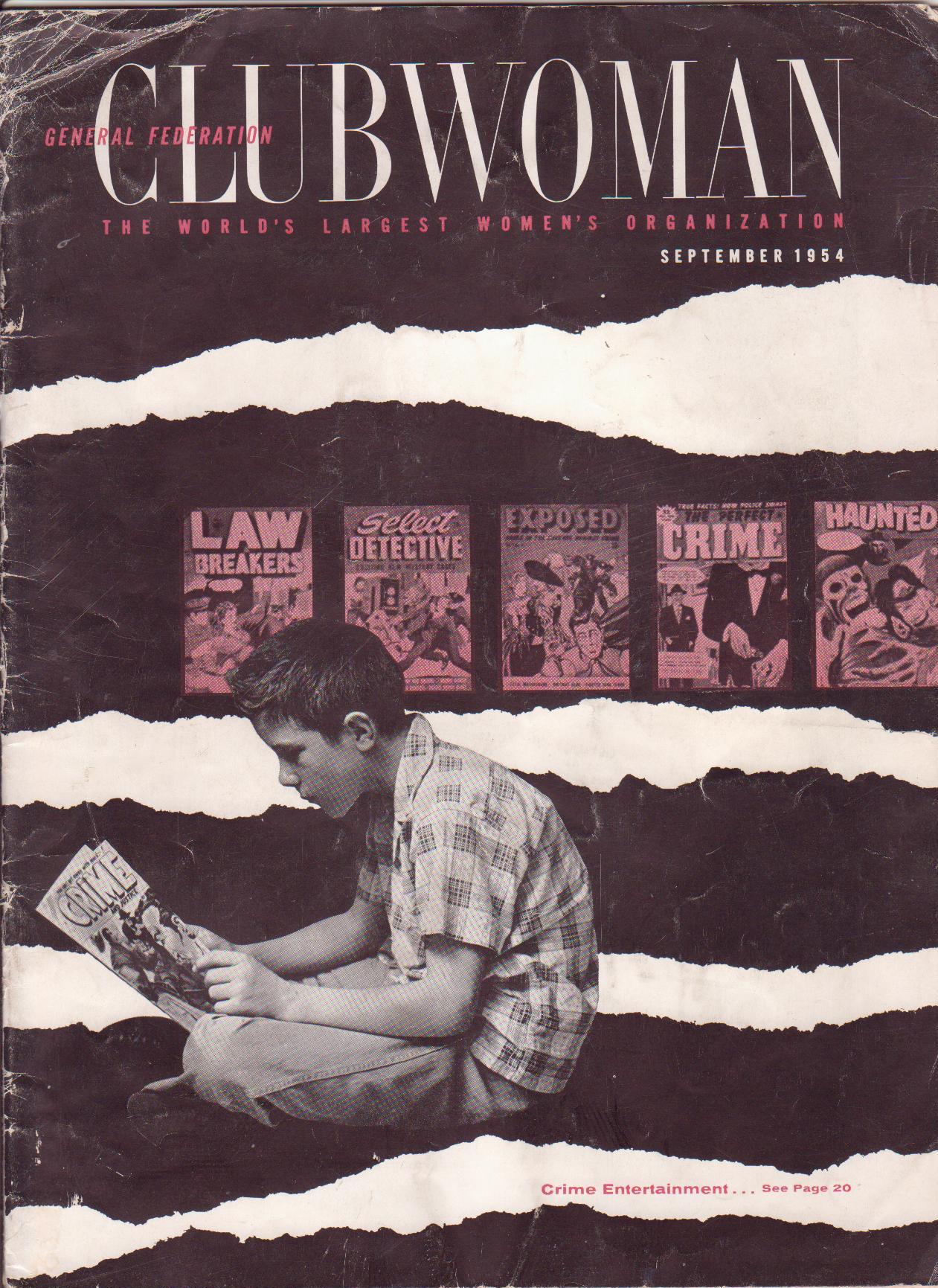 | Clubwoman September, 1954 | Cover story and article about the crime entertainment business. Cover features images of, from left to right, Crime and Justice #20, Lawbreakers #2, Select Detective #3, Exposed #6, Perfect Crime #14 and This Magazine is Haunted #20. |
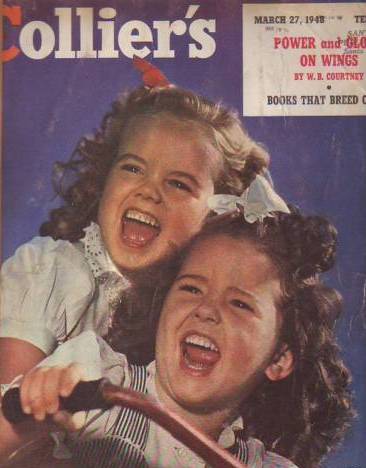 | Collier's March 27, 1948, pp. 22-23 | Judith Crist "Horror in the Nursery" Read it! |
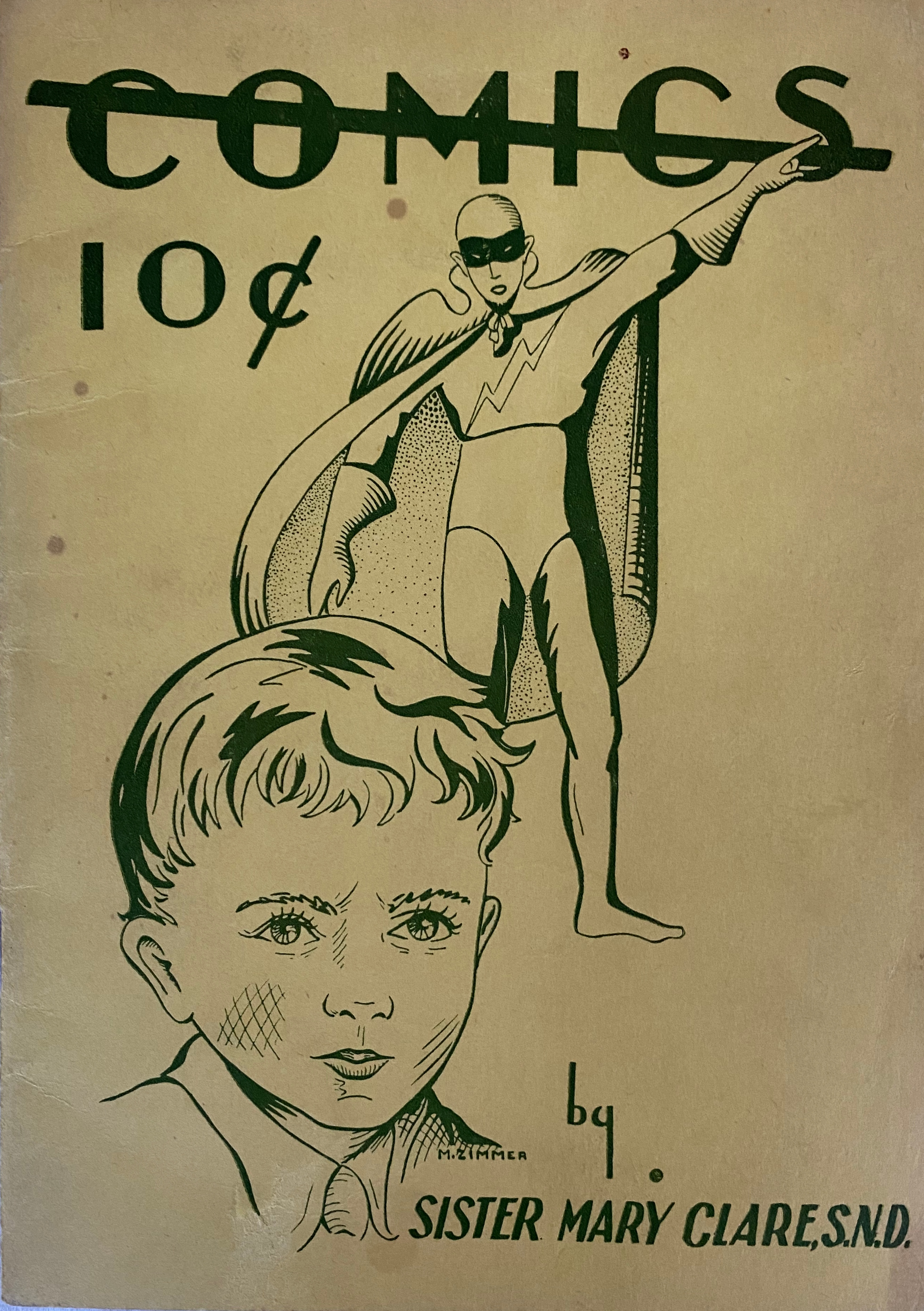 | Comics 1943 | Anti-comics pamphlet by Sister Mary Clare, cited by Dr. Wertham on pp. 228-229 of Seduction of the Innocent. |
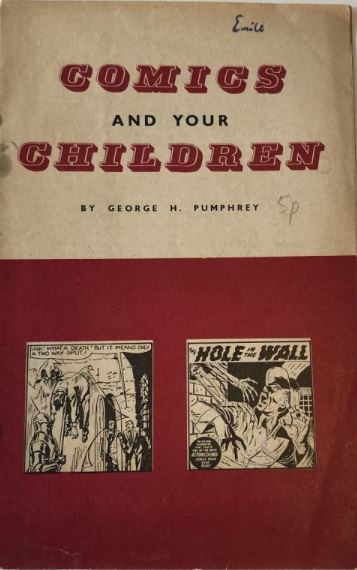 | Comics and Your Children 1954 | Anti-comics pamphlet by George Pumphrey, which likely came out in 1954. |
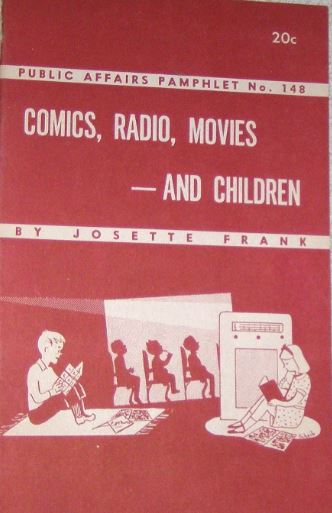 | Comics, Radio, Movies - And Children March, 1949 | Josette Frank. Public Affairs Pamphlet #148 in a series. This pamphlet went through several editions over the years, eventually including "Television" in the title and content. |
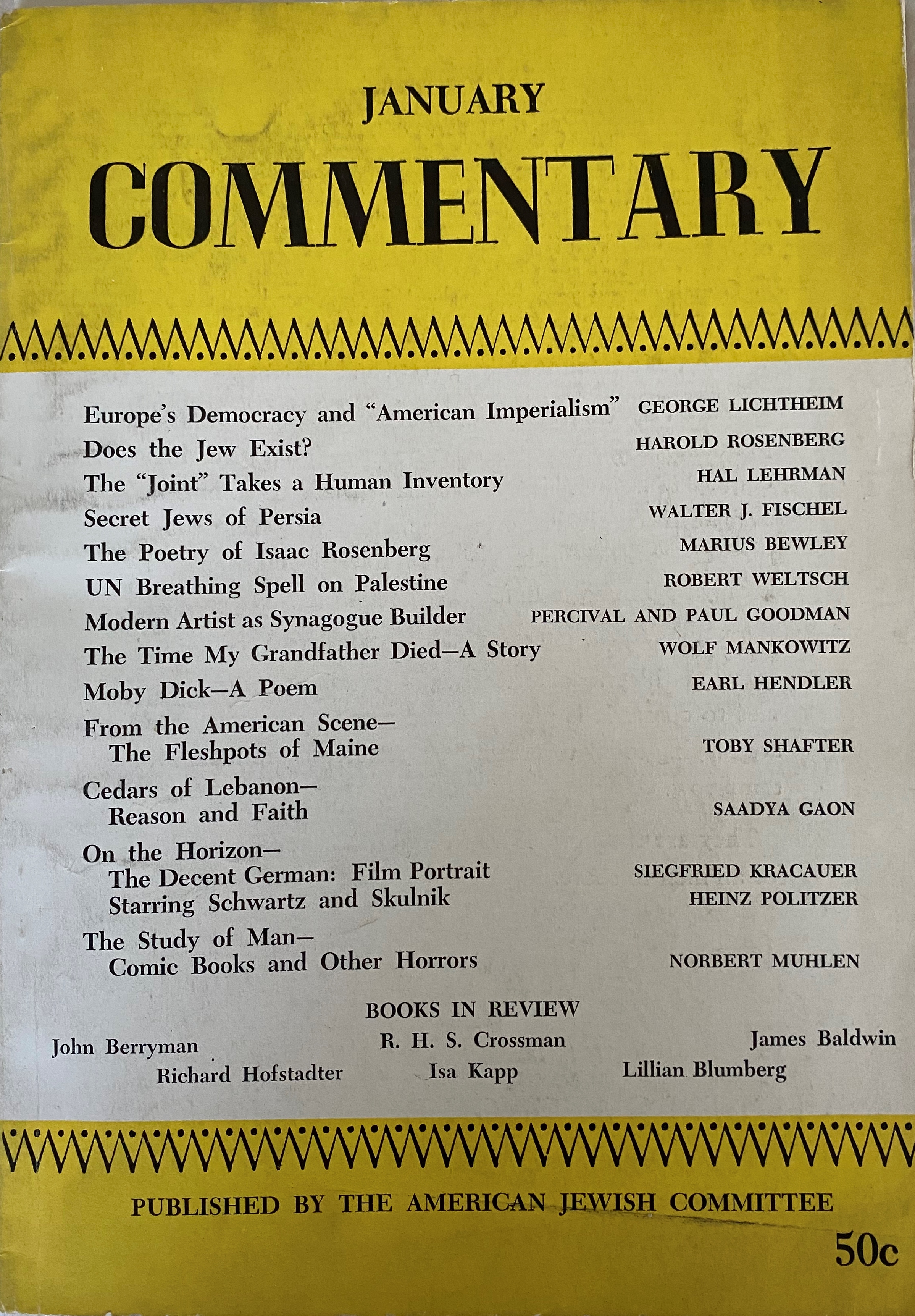 | Commentary January, 1949, pp. 80-88 | Norbert Muhlen. Comic Books and Other Horrors," an article indicating that comic books are lessons in fascism. Read it! |
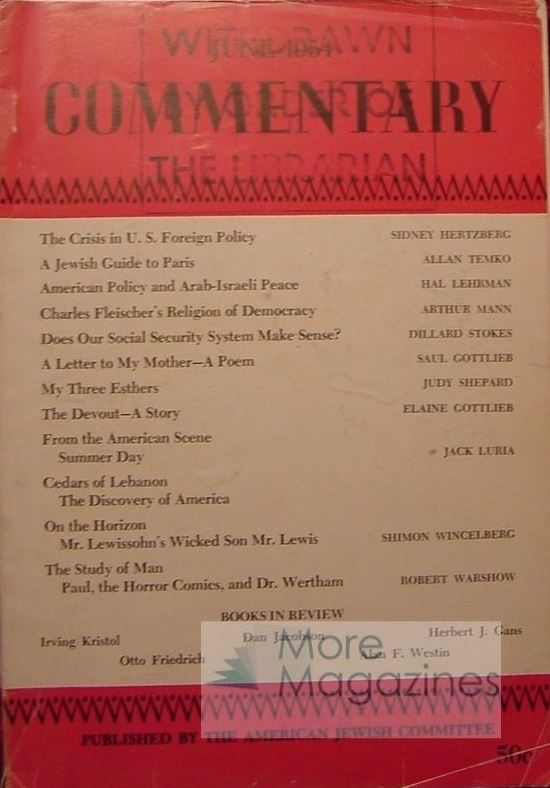 | Commentary June, 1954 | "Paul, the Horror Comics and Dr. Wertham" Read it! |
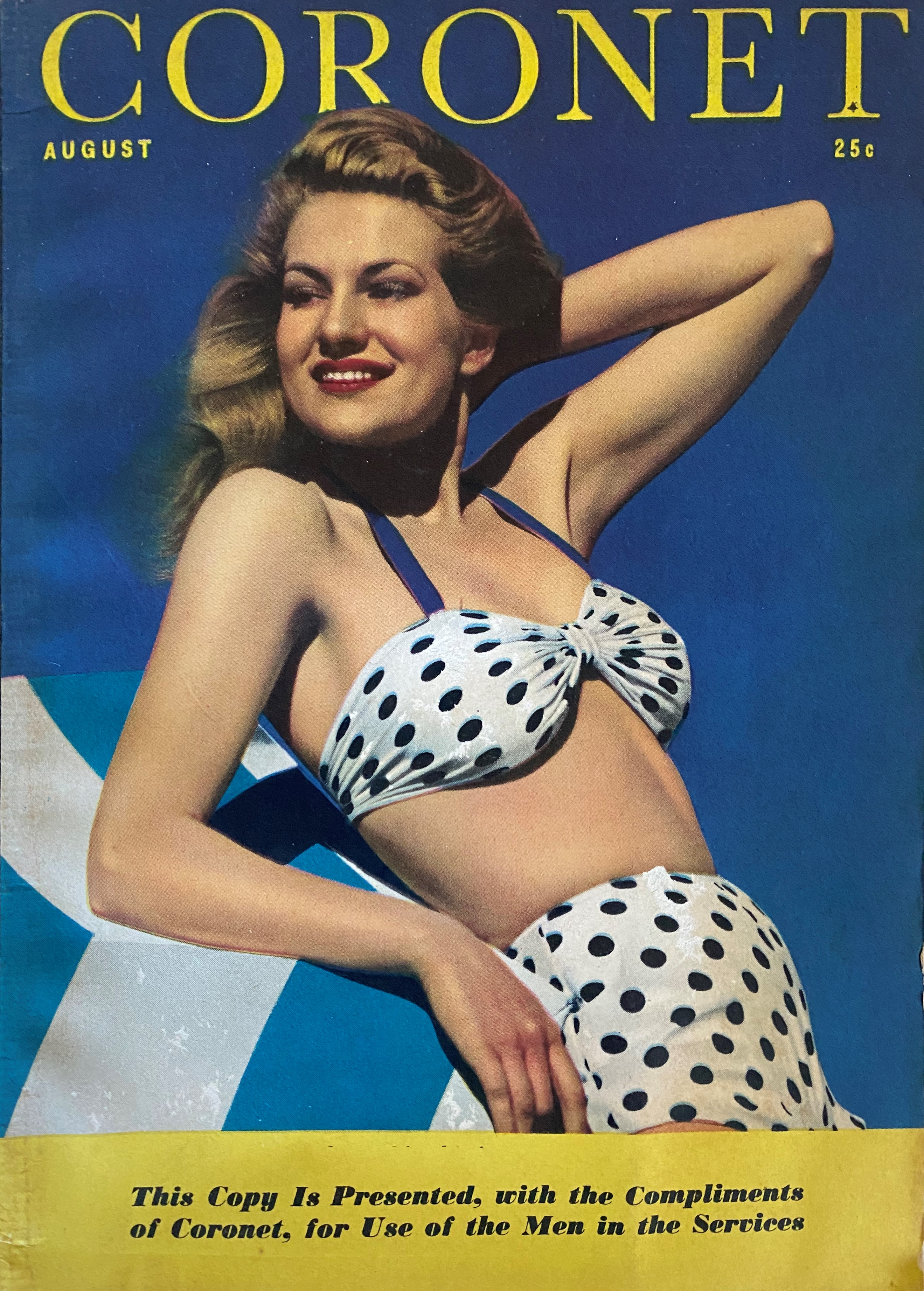 | Coronet August, 1944 | "Are the Comics Harmful Reading for Children?" by Milton Caniff |
| | Educational Administration and Supervision #8, May, 1942, pp. 344-353 | Paul Witty, Ethel Smith, and Anne Coomer. Reading the Comics in Grades IX-XII |
| | Elementary English January, 1955 | Paul Witty and Robert A. Sizemore. "Reading the Comics - A Study of Studies and an Evaluation" |
| | Elementary English February, 1955 | Paul Witty and Robert A. Sizemore. "Reading the Comics - A Study of Studies and an Evaluation" |
| | Elementary English March, 1955 | Paul Witty and Robert A. Sizemore. "Reading the Comics - A Study of Studies and an Evaluation" |
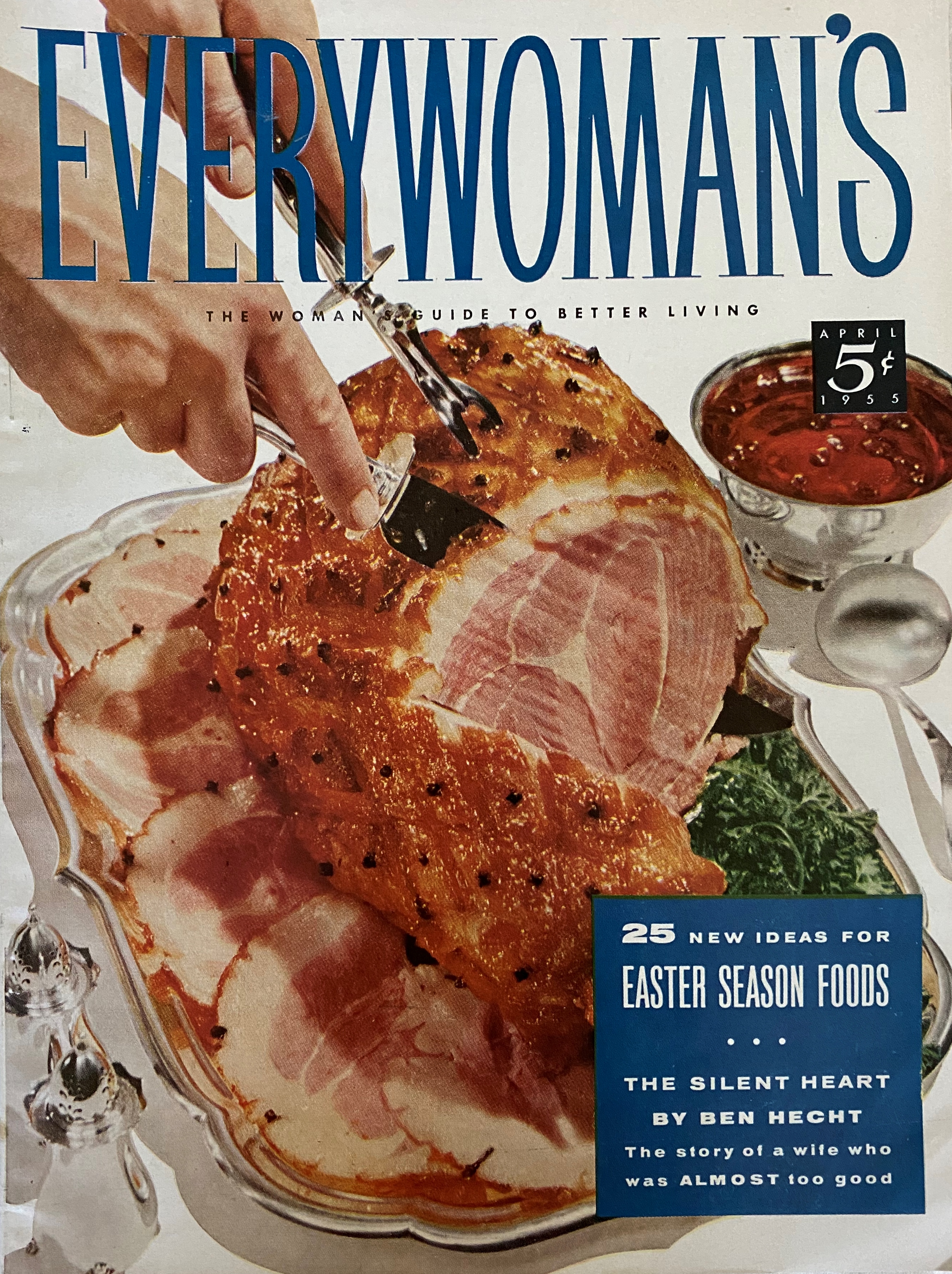 | Everywoman's April, 1955, pp. 20-21+ | "Attention All Parents! What Should You Do About Comic Books?" anti-comics article |
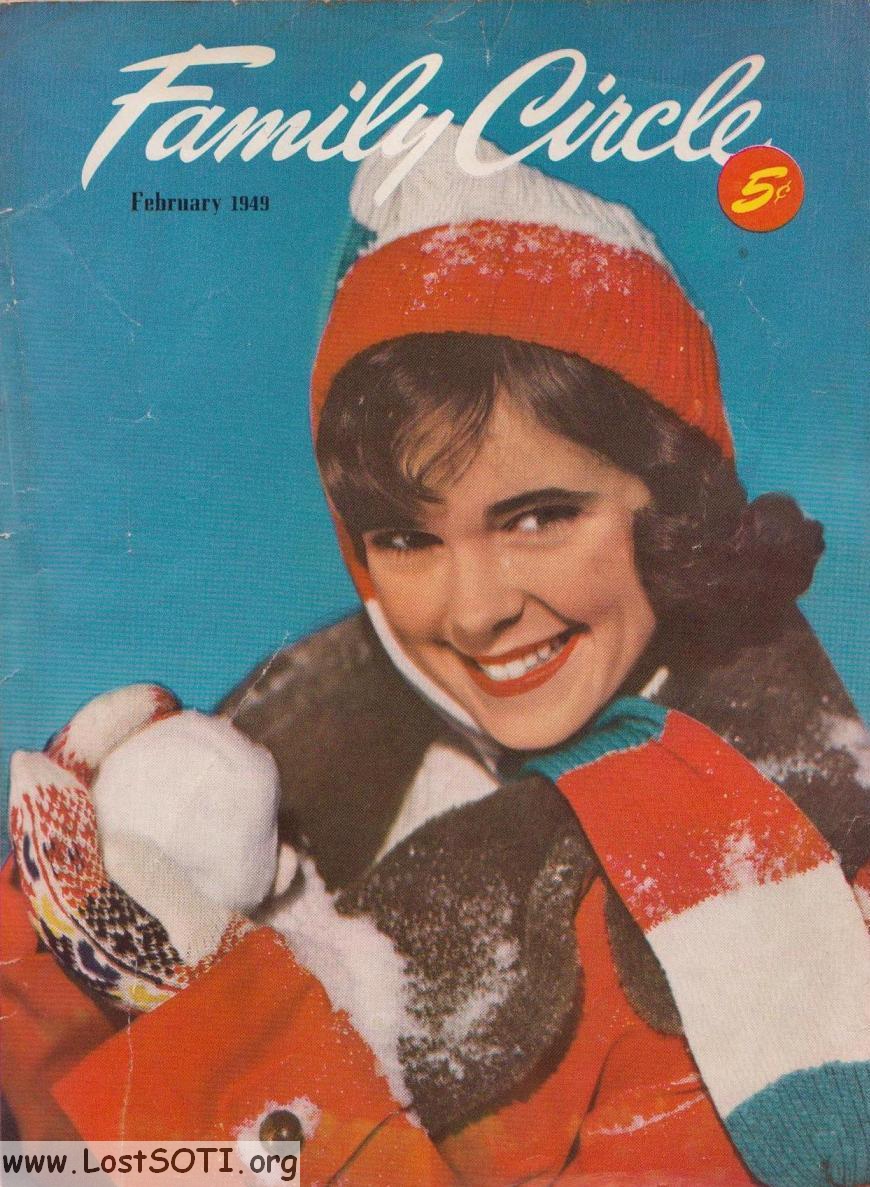 | Family Circle February, 1949, pp. 60-63 | Harvey Zorbaugh & Mildred Gilman. "What Can YOU do about Comic Books?" Read it! |
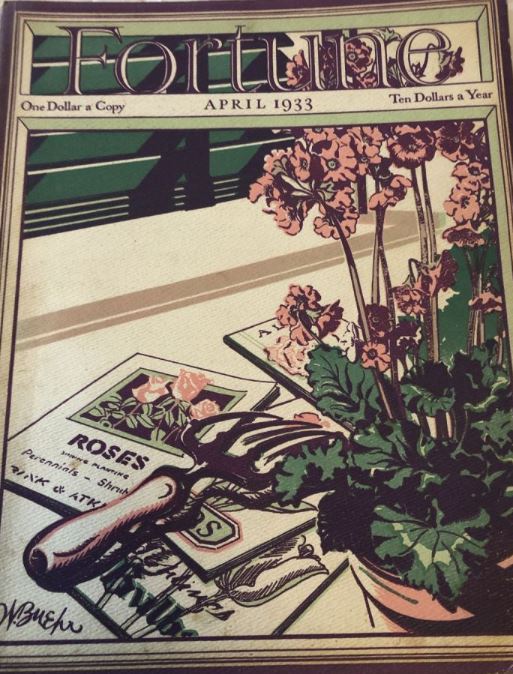 | Fortune April, 1933 | "The Funny Papers" an article that describes the big money being made on comic strips, published about the time the American comic book was born. |
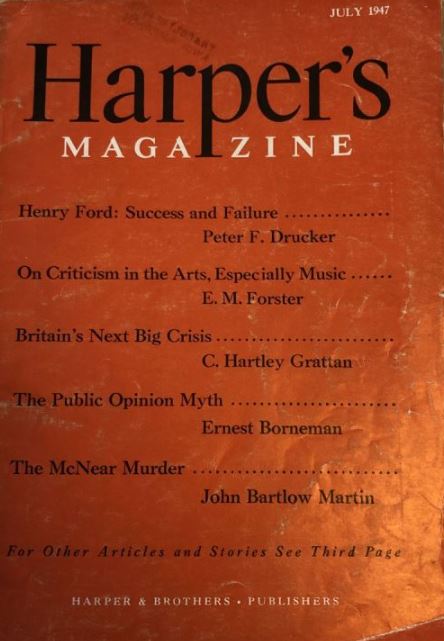 | Harper's Magazine July, 1947 | "After Hours" column involves the columnist's daughter and her large collection of comic books. |
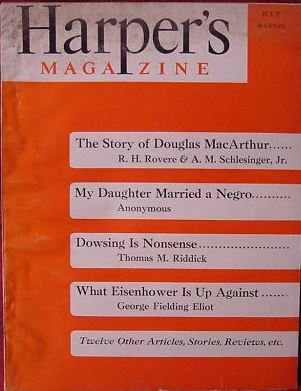 | Harper's Magazine July, 1951, pp. 6-7 | In the editoral feature "Personal & Otherwise", the editors criticize the Kefauver committee's investigation of comic books, and Dr. Wertham's work. Wertham responded in the September issue. |
| | Hartford Courant February 14, 1954 | "Depravity for Children - Ten Cents a Copy" anti-comics article |
| | Harvard Law Review January, 1955 | Article regarding anti-comics laws. |
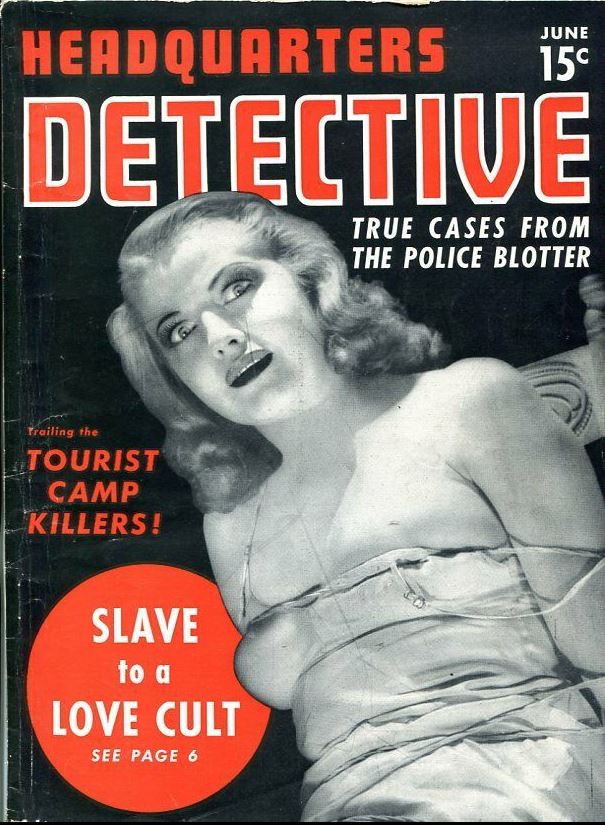 | Headquarters Detective June, 1940 | Not an article related to comic books, but this magazine profoundly influenced the comic book industry. In the 1940's New York had a law on the books that prohibited the sale of a "magazine.. principally made up of criminal news, police reports, or accounts of criminal deeds, or pictures, or stories of deeds of bloodshed, lust or crime." Under this statute, a bookseller was convicted of selling this very magazine, Headquarters Detective #1. The United States Supreme Court, on March 29, 1948, struck down this law as unconstitutional, which paved the way for an explosion of crime comic books and eventually horror comics as well. |
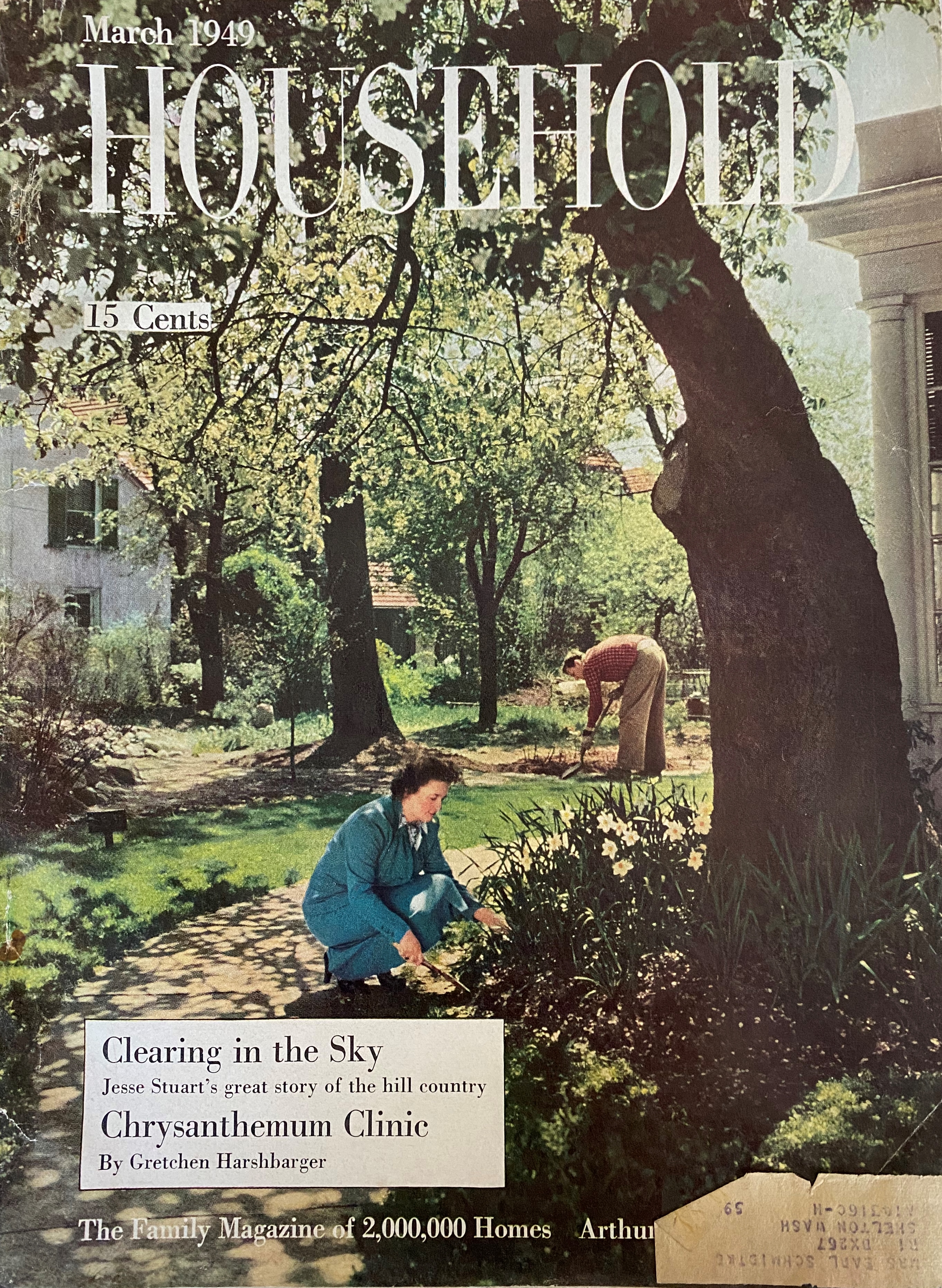 | Household March, 1949 | "The Truth About Comics" by Josette Frank |
| | Journal of Education Journal of Education #12 (1944), pp. 14-15 | James Landsdowne. The Viciousness of the Comic Book |
| | Journal of Educational Psychology March, 1942, pp. 173-182 | Paul Witty, Ethel Smith, and Anne Coomer. Reading the Comics in Grades IV-VII |
| | Journal of Educational Research Vol 60, February, 1947, pp. 458-464 | Florence Heisler. "A Comparison of Comic Book and Non-Comic Book Readers of the Elementary School" |
| | Journal of Educational Sociology Vol 18, December, 1944, pp. 204-213 | Sidonie Gruenberg. "The Comics as a Social Force" |
| | Journal of Educational Sociology Vol 23, 1949, pp. 195-205 | Frederick Thrasher. The Comics and Delinquency: Cause or Scapegoat |
| | Journal of Educational Sociology December, 1949 | Disparages Wertham s theories. Paul Witty begins to publish a series of academic articles on comic books. |
| | Journal of Experimental Education #10, December, 1941, pp. 105-109 | Reading the Comics A Comparative Study |
| | Journal of Experimental Education #10, December, 1941, pp. 100-104 | "Children's Interest in Reading the Comics" |
 | Ladies' Home Journal January, 1909, p. 5 | "A Crime Against American Children" Article decrying the problems of the comic strips, using arguments that would be rehashed years later against comic books. |
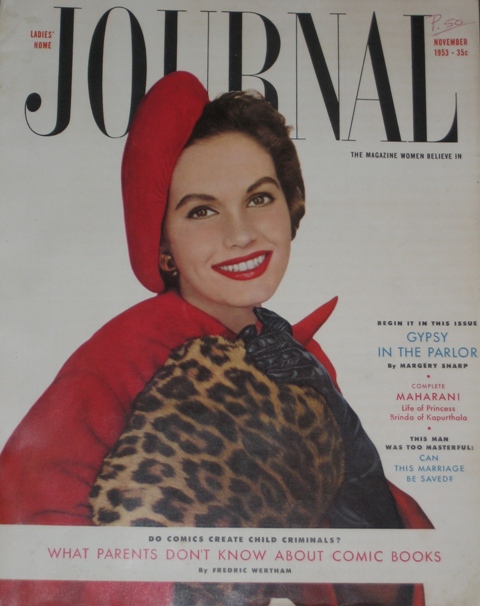 | Ladies' Home Journal November, 1953, pp. 50-53 | Fredric Wertham. "What Parents Don't Know About Comic Books" Read it! |
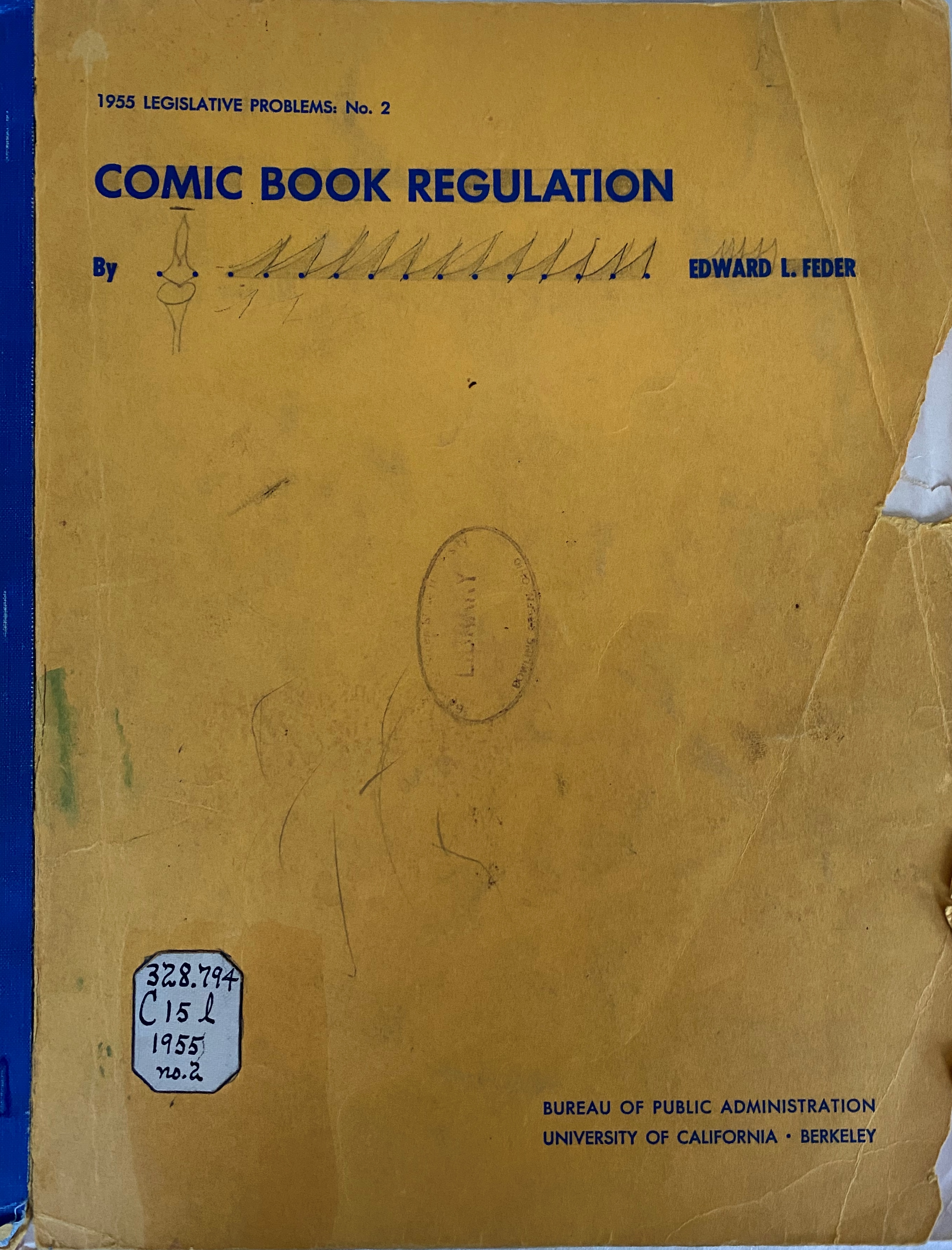 | Legislative Problems #2, 1955 | Edward L. Feder. "Comic Book Regulation", published by Bureau of Public Administration, University of California, Berkeley. |
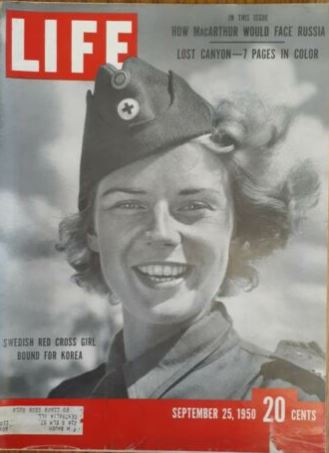 | Life Magazine September 25, 1950 | "Democratic Comic Books" is a two-page illustrated spread featuring, among other things, the Story of Harry S Truman comic book (which Wertham later mentioned in SOTI). |
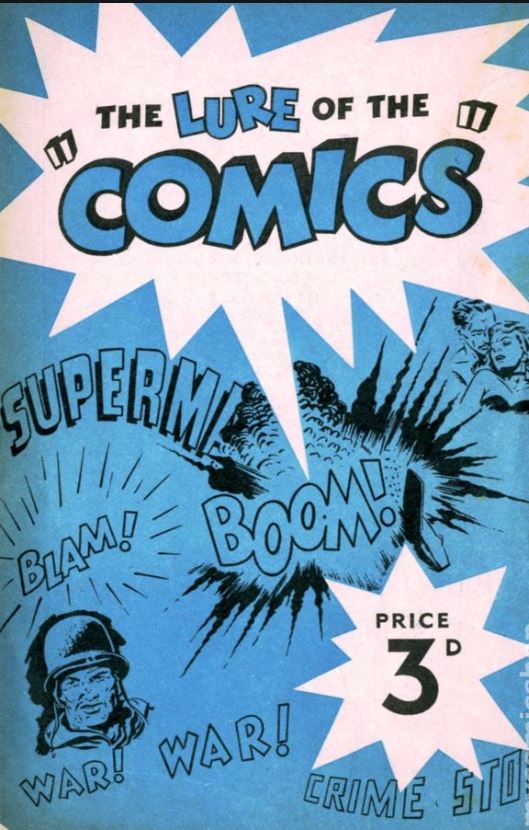 | The Lure of the Comics April, 1952 | British anti-comics pamphlet published by the International Women's Day Committee |
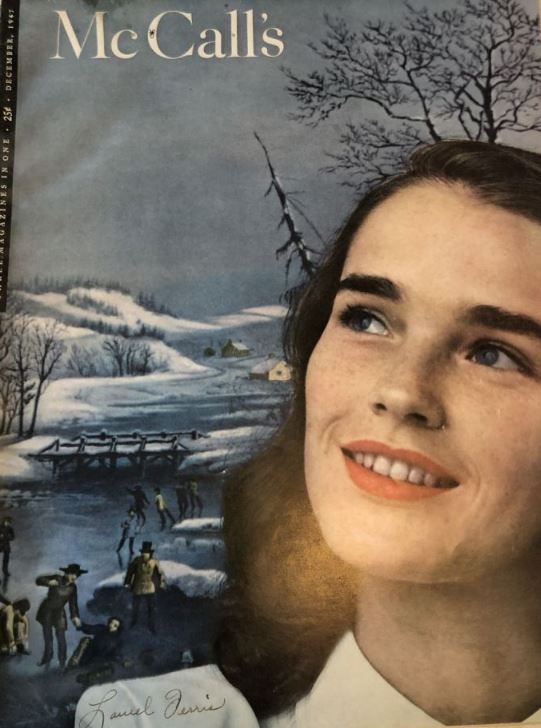 | McCall's December, 1947, pp. 24-25+ | Selma Robinson. "What Do They See in the Comics?" |
| | The Nation's Schools Vol 27, October, 1953, pp. 54-55+ | Herbert S. Lewin "Facts and Fears About the Comics" |
| | National-Parent- Teacher January, 1942, pp. 29-30 | Paul Witty. Those Troublesome Comics |
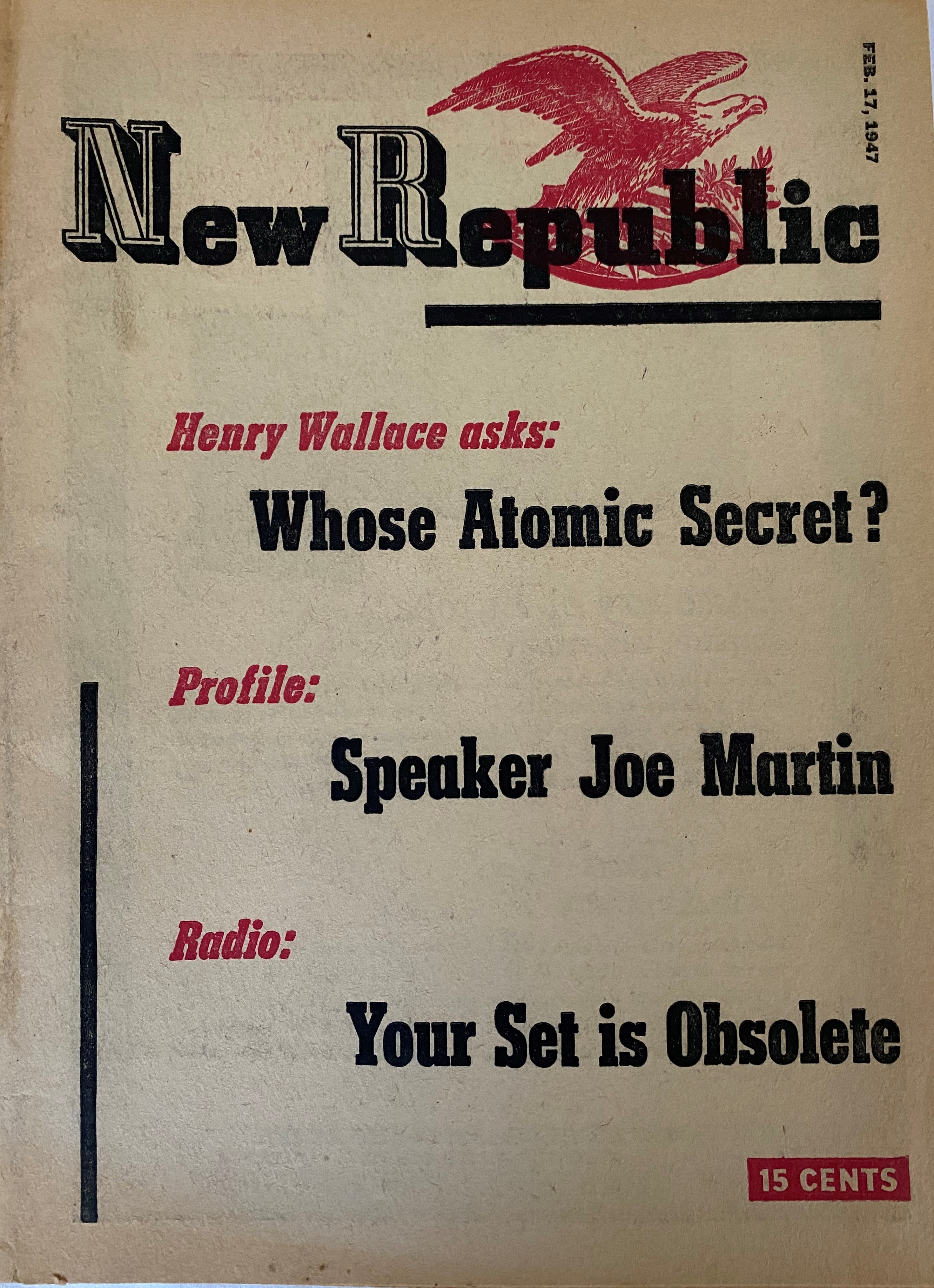 | New Republic February 17, 1947, pp. 20-23 | Marya Mannes. Junior has a Craving |
| | New Republic October 10, 1949 | Malcolm Cowley. Sex, Censorship & Superman |
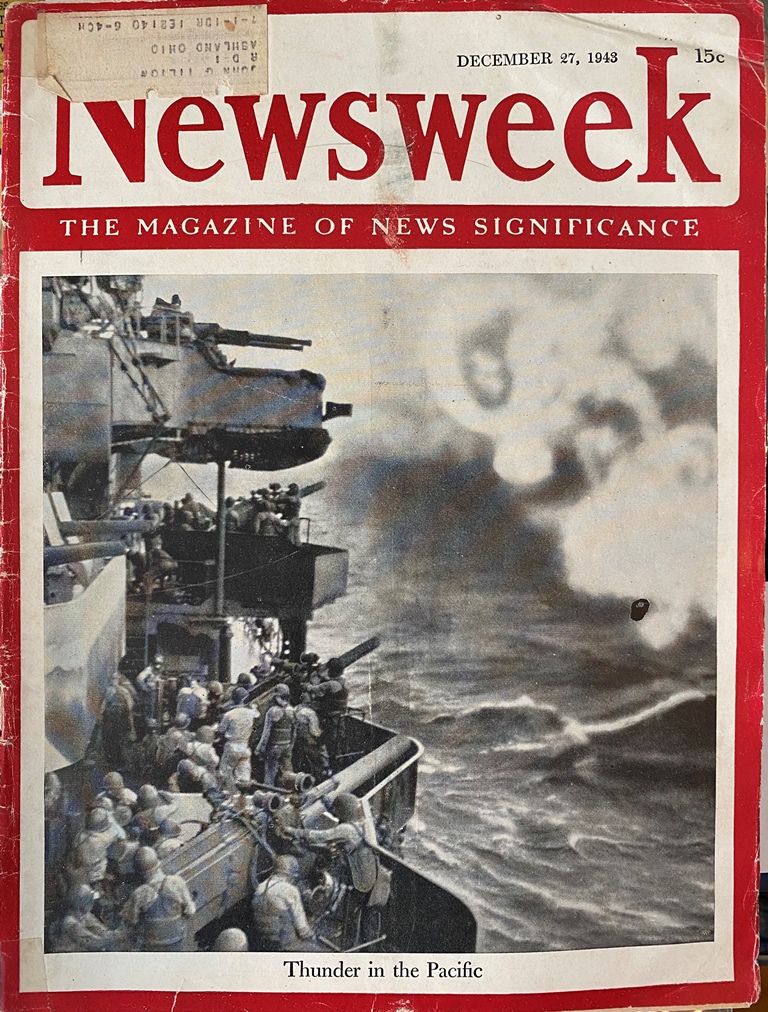 | Newsweek December 27, 1943, p. 55 | "Escapist Paydirt - Comic Books Influence Friends and Make Plenty of Money Too" |
| | Newsweek December 20, 1948 | "Fighting Gunfire with Fire" contains comic book sales figures, per David Hajdu's book. |
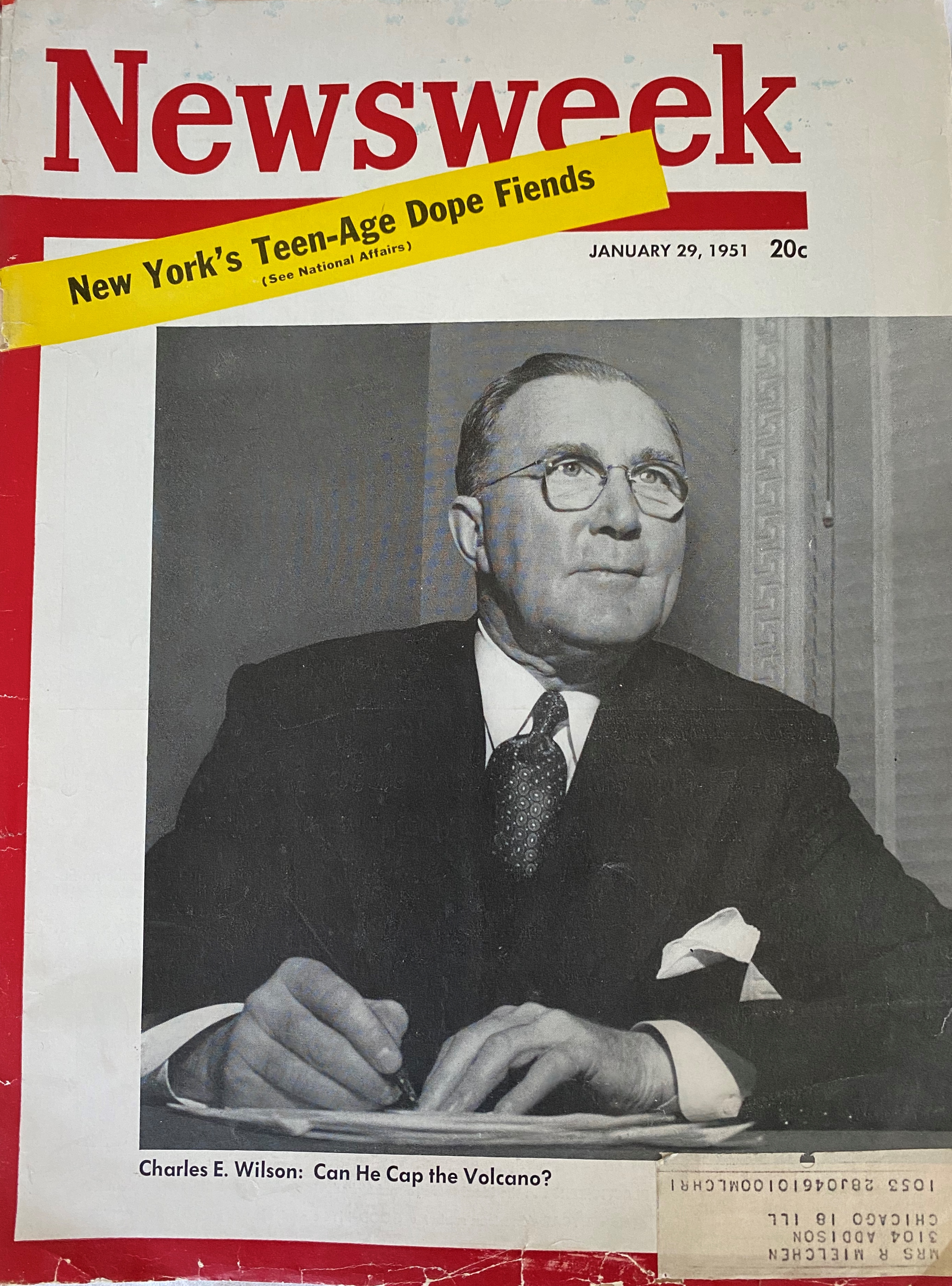 | Newsweek January 29, 1951, p. 23 | "New York Wakes Up to Find 1500 Teen Age Dope Addicts" article cited by Dr. Wertham on page 25 of Seduction of the Innocent. |
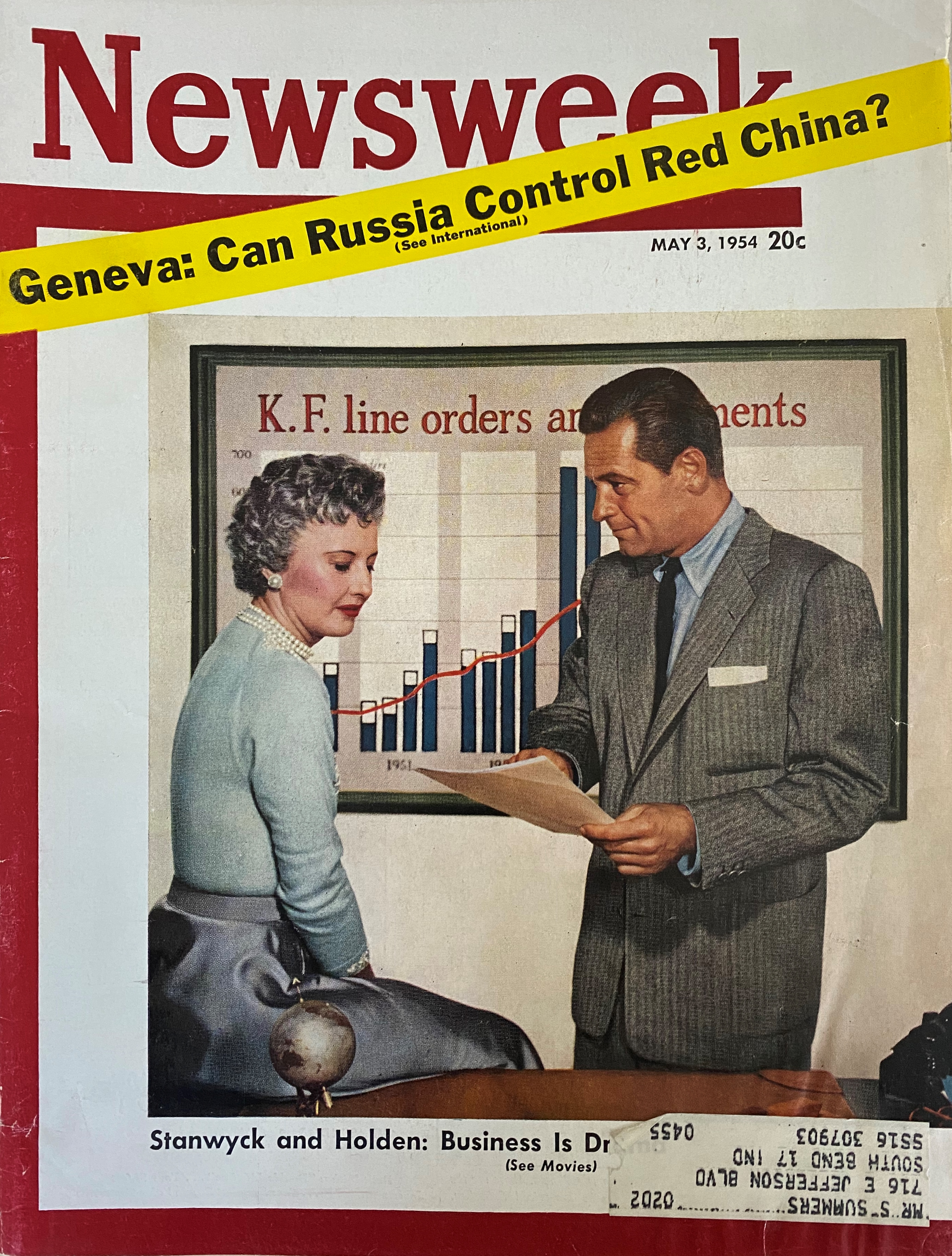 | Newsweek May 3, 1954, p. 60 | "Are Comics Horrible?" article about the U.S. Senate hearings and the comic book industry. |
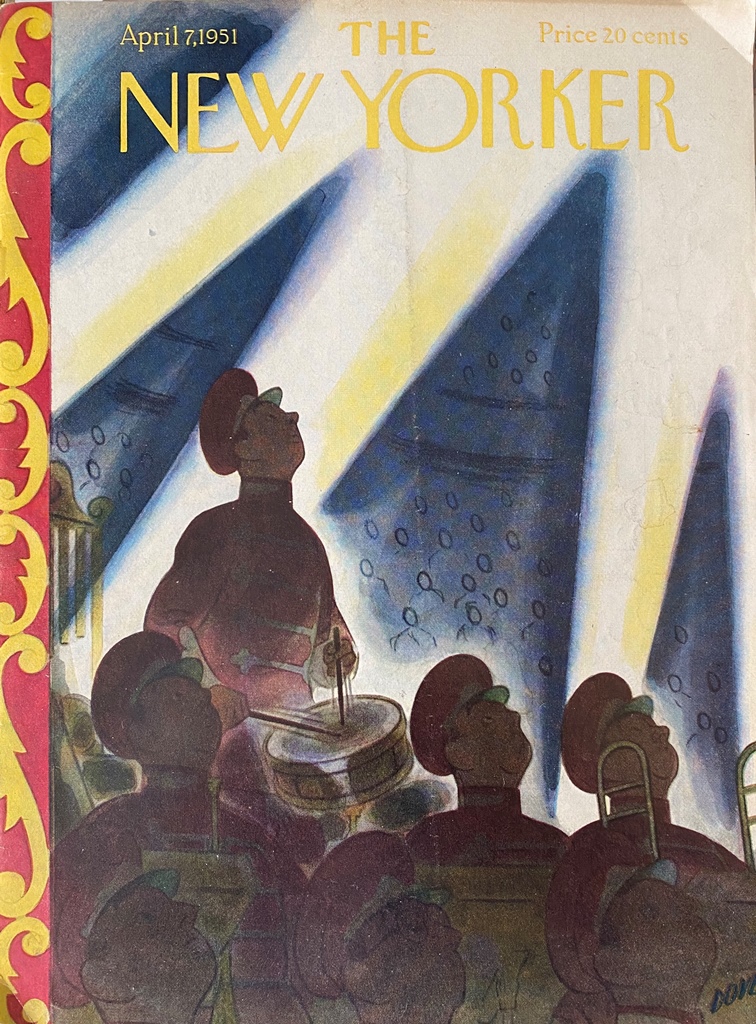 | The New Yorker April 7, 1951, pp. 94-95 | Two leters from Bill Gaines: one praising coverage by the New Yorker, and the other criticizing it. |
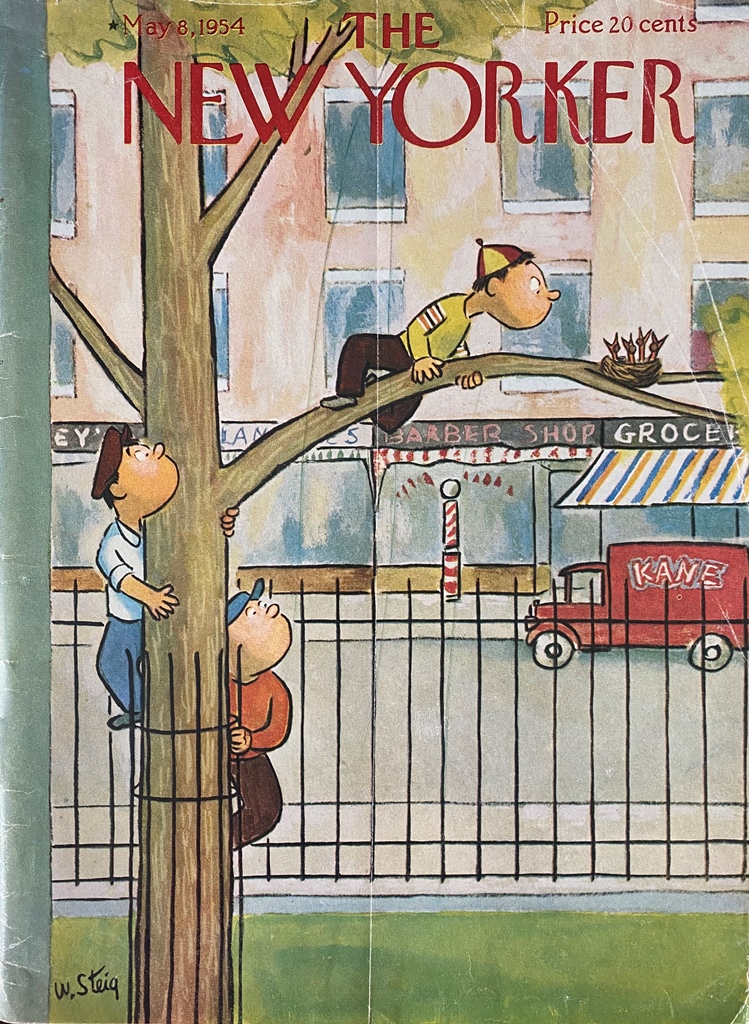 | The New Yorker May 8, 1954, pp. 122-129 | Extensive review of Seduction of the Innocent |
| | New York Herald Tribune October 28, 1947 | "Comic Books are Called Obscene by N.Y. Psychiatrist at Hearing" |
| | New York Herald Tribune April 22, 1954 | "Whether Crime 'Comic' Books Lead Child Astray is Debated" |
| | New York Times October 30, 1948 | "Comics Debated as Good or Evil" |
| | New York Times November 25, 1948 | "Modern Comics Hit by Mayors' Report" |
| | New York Times April 22, 1954 | "No Harm in Horror, Comics Issuer Says" |
| | Our Rejected Children 1950 | Book with a section on juvenile delinquency that includes a chapter on comic books. |
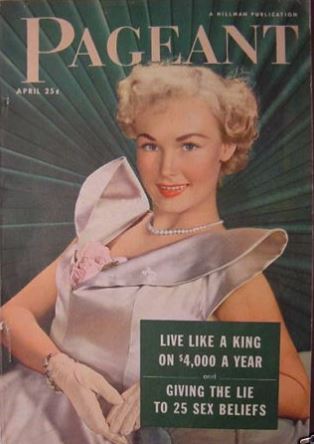 | Pageant April, 1950 | Article on a 13 year old who saved another child using artificial respiration learned from a comic book. This article is cited in defense of comic books in Harper's Magazine, September, 1951, p. 16. |
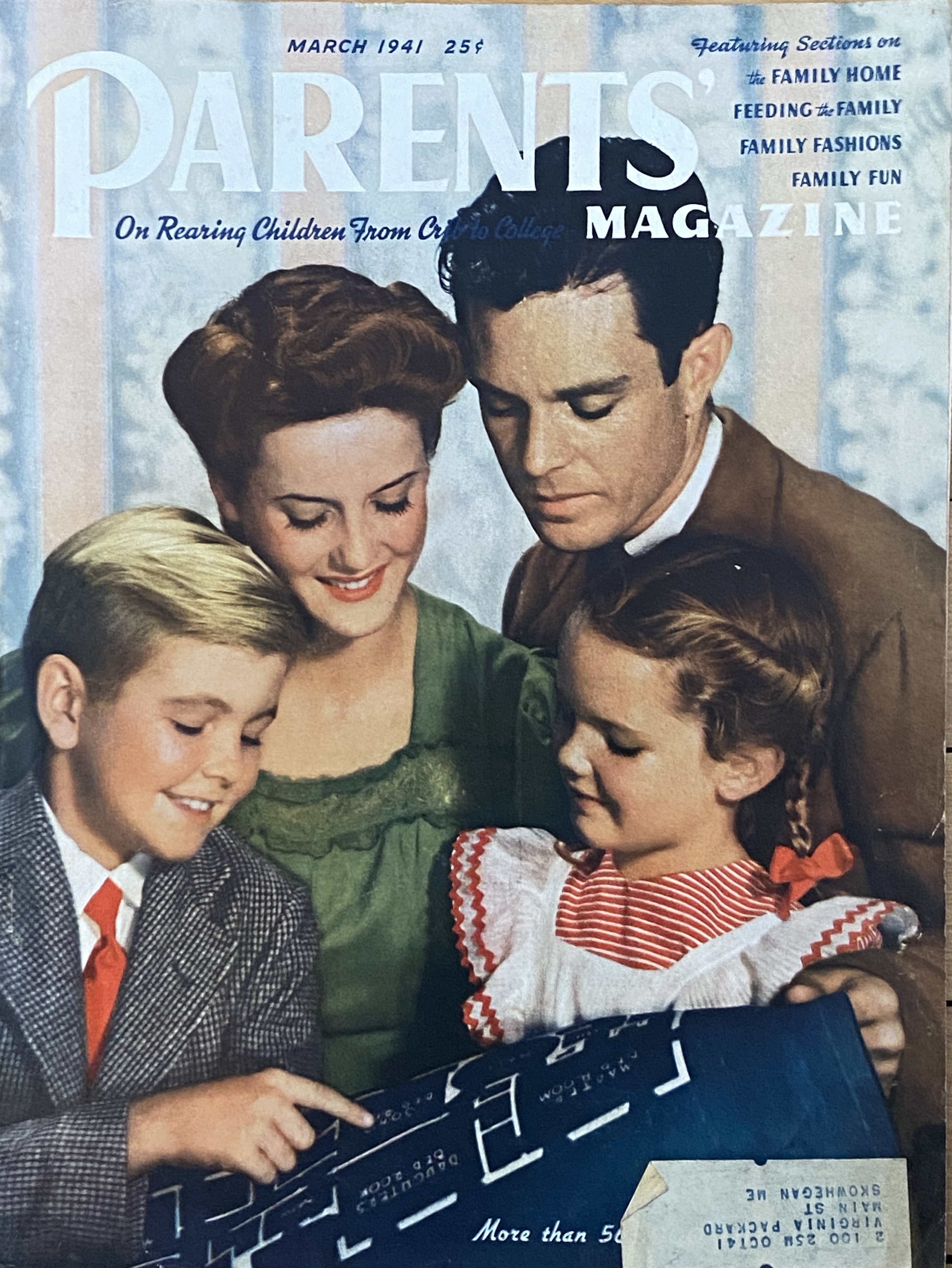 | Parents' Magazine March, 1941, pp. 26-27, 93 | "What To Do About the 'Comics'" by Clara Savage Littledale, an ad for True Comics masquerading as an anti-comics article. |
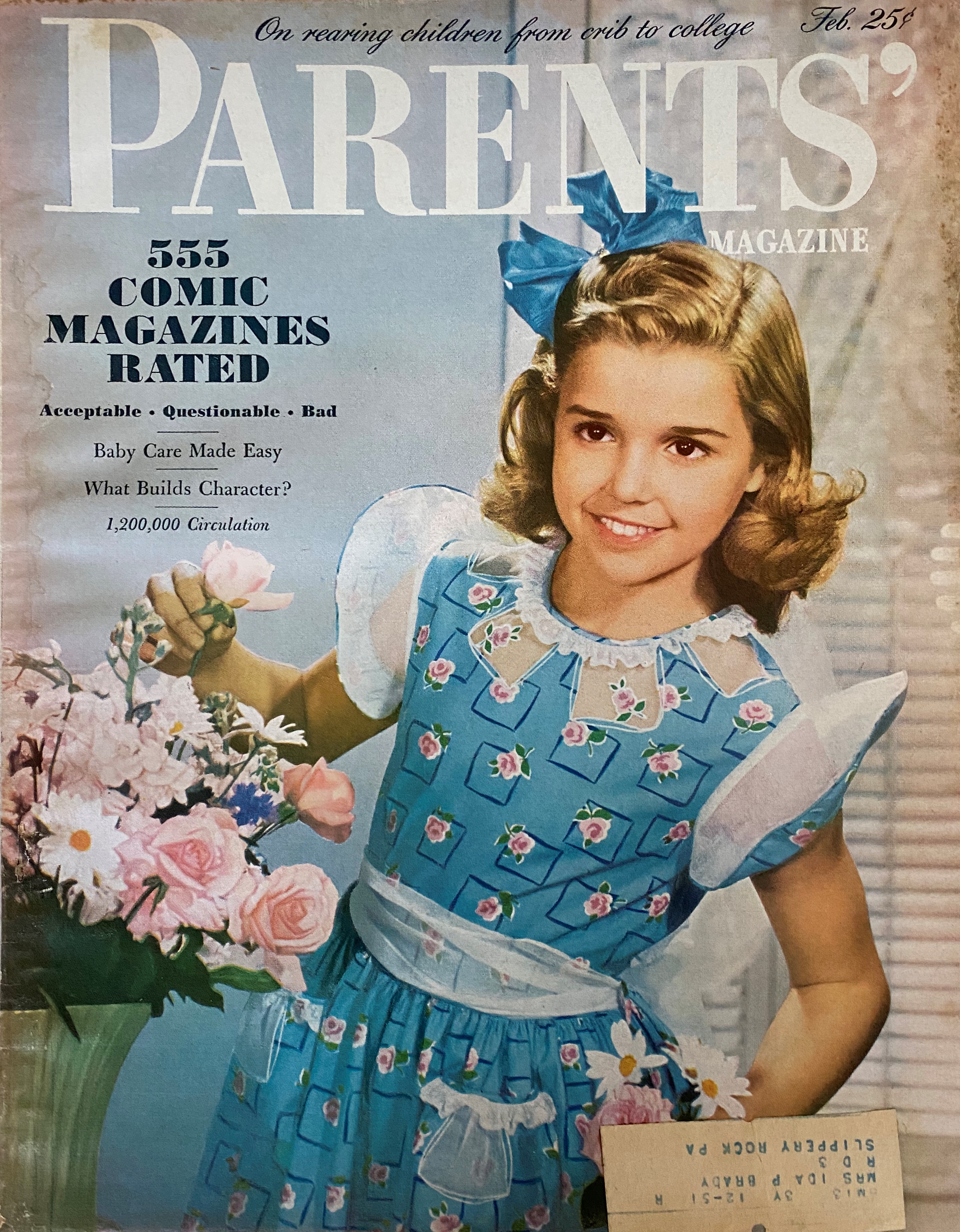 | Parents' Magazine February, 1950, pp. 38-39+ | Jesse L. Murrell. "Cincinnati Rates the Comic Books" |
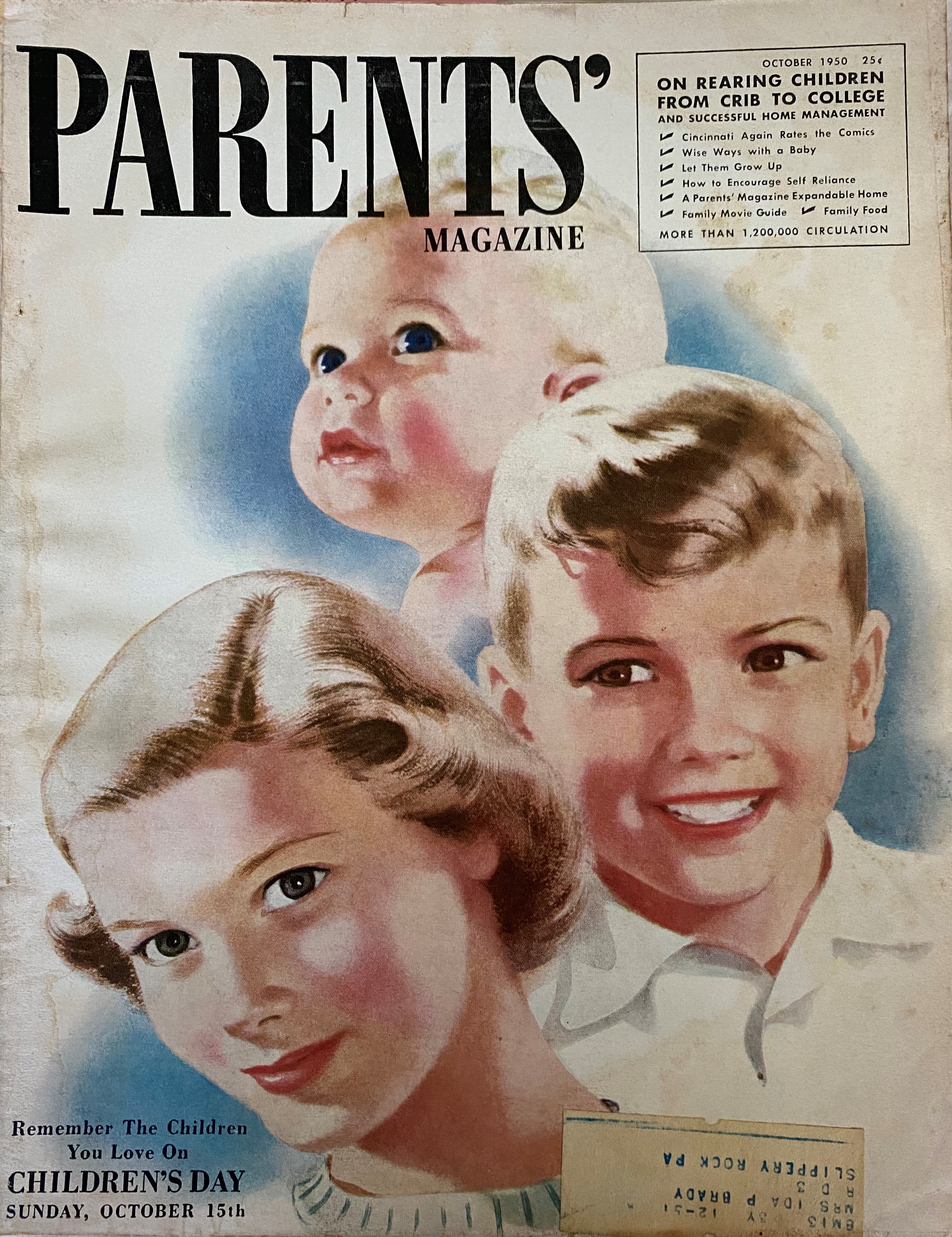 | Parents' Magazine October, 1950, pp. 44-45+ | Jesse L. Murrell. "Cincinnati Again Rates the Comic Books" |
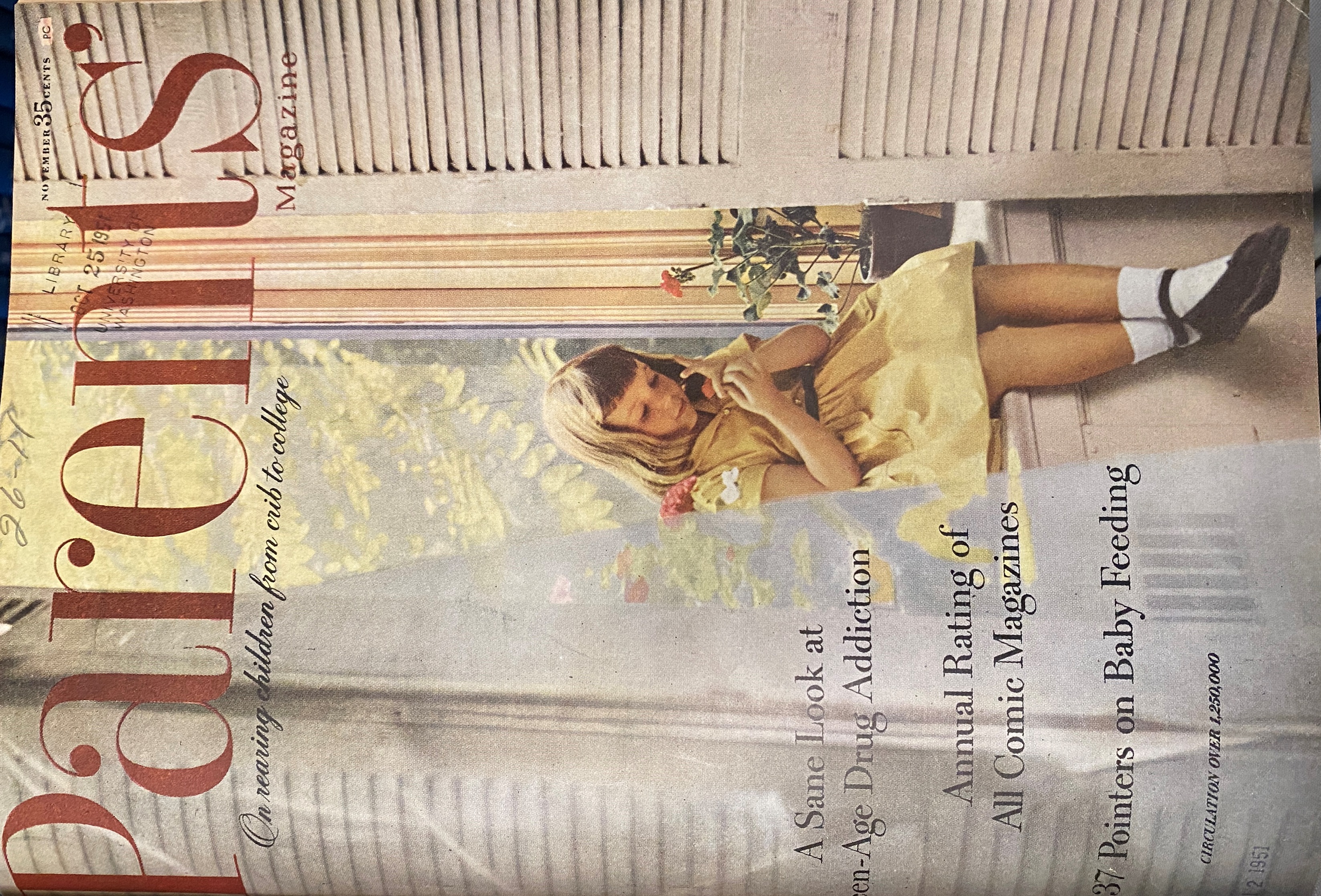 | Parents' Magazine November, 1951, pp. 32-33, 134-135 | Jesse L. Murrell. "How Good are the Comic Books?" |
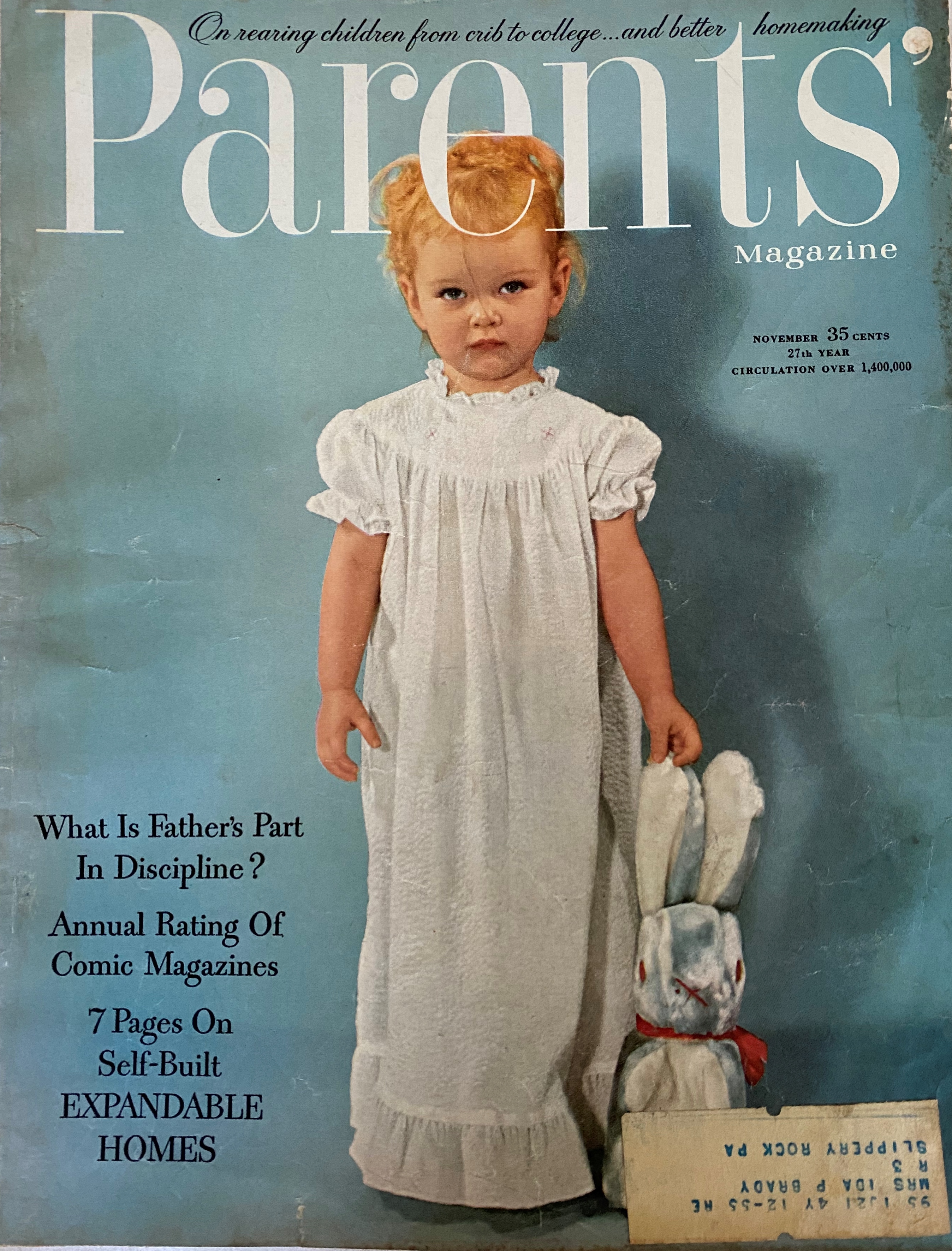 | Parents' Magazine November, 1952, pp. 48-49+ | Jesse L. Murrell, D.D. "Annual Rating of Comic Magazines" |
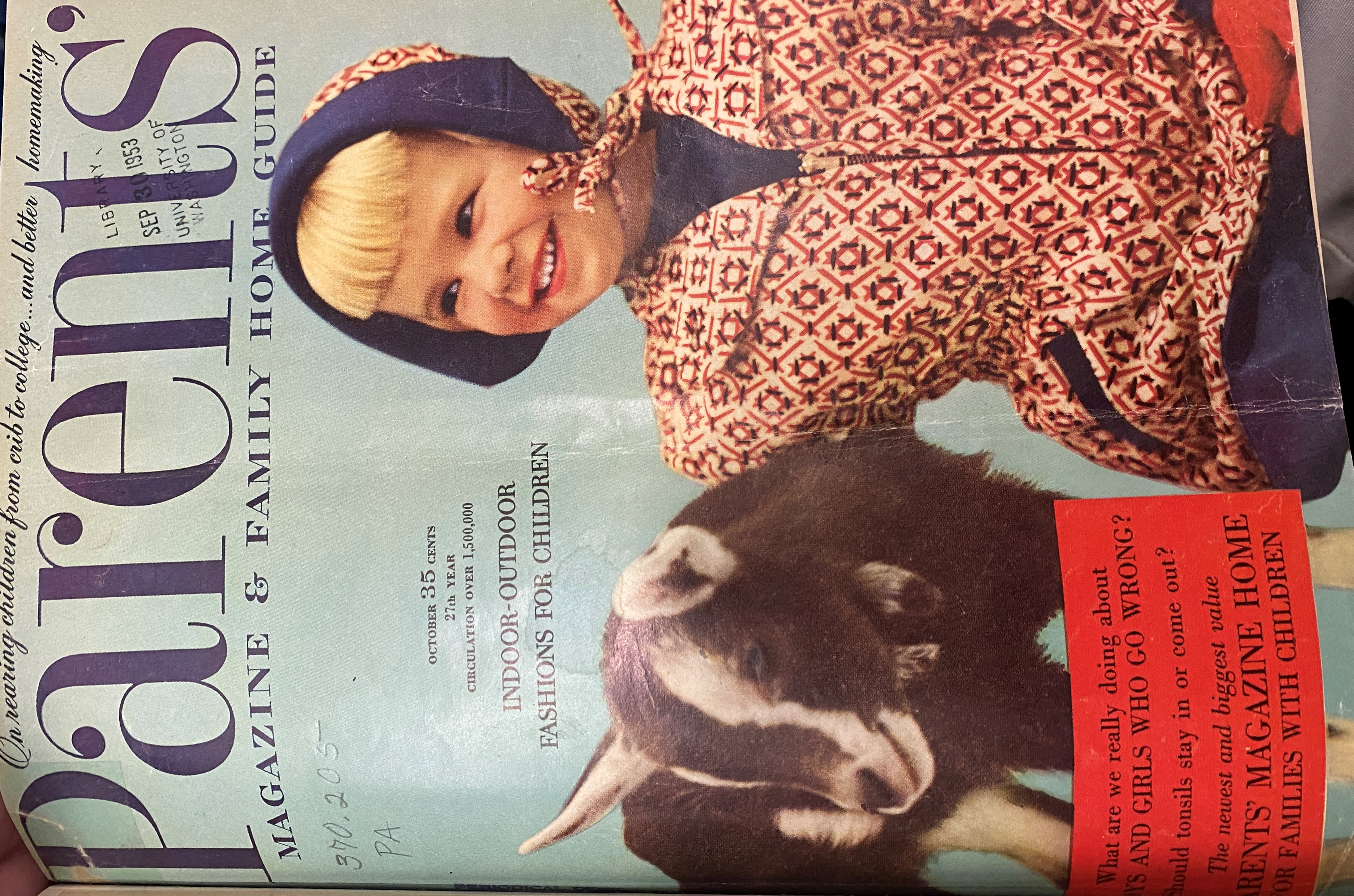 | Parents' Magazine October, 1953, pp. 54-55, 101-105 | Jesse L. Murrell, "Annual Rating of Comic Magazines" |
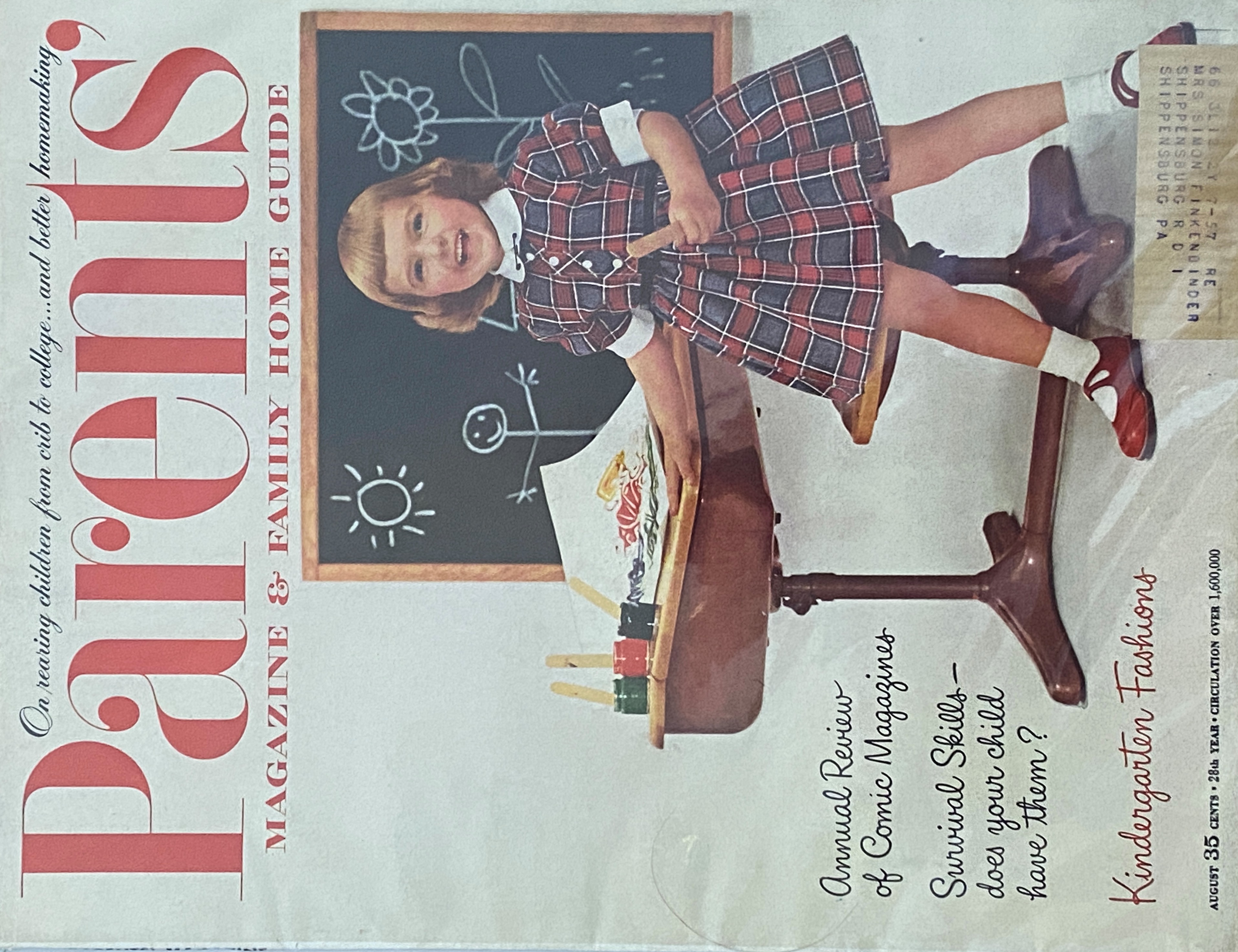 | Parents' Magazine August, 1954, pp. 48-49,111-115 | Jesse L. Jurrell, D.D. "Annual Rating of Comic Magazines" |
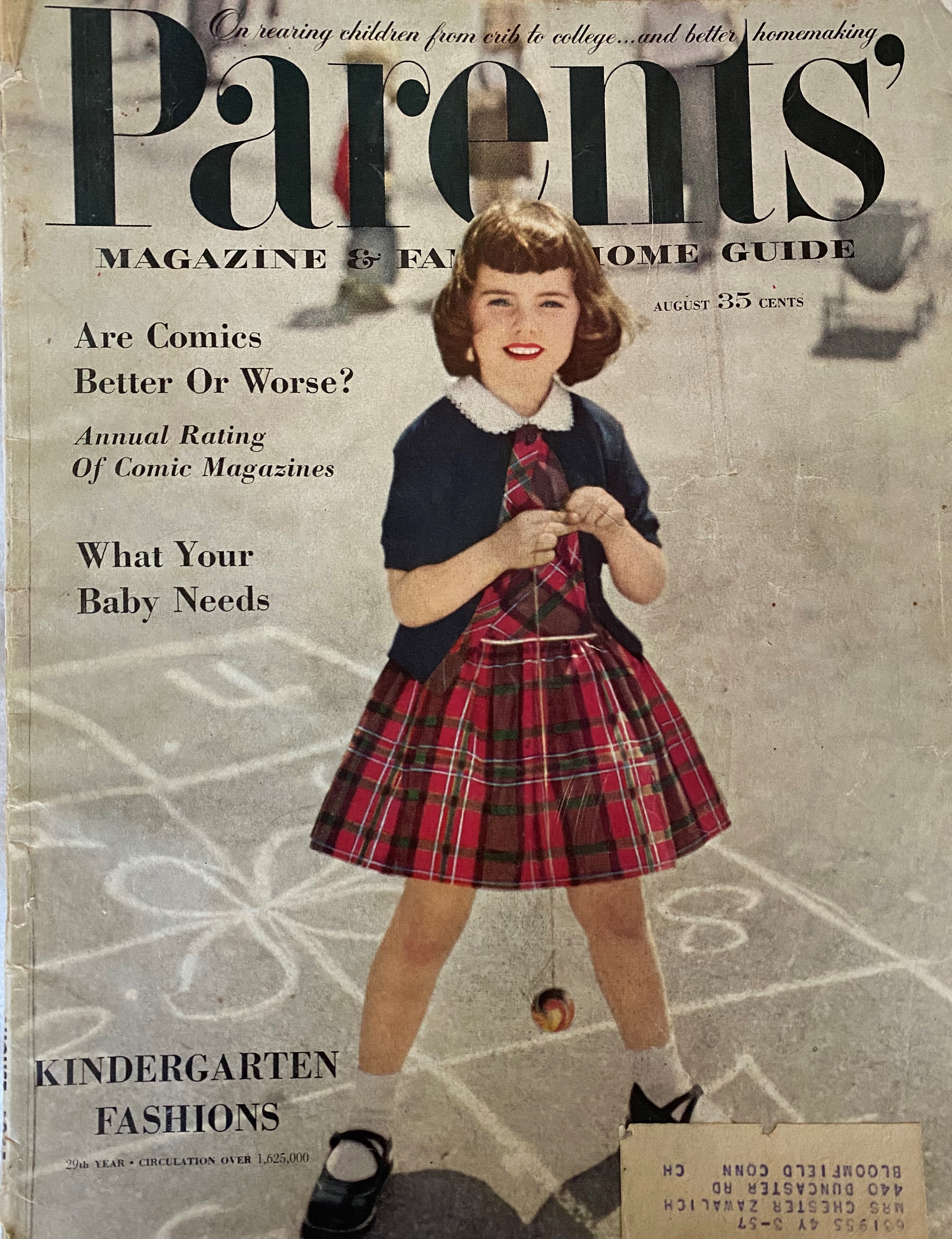 | Parents' Magazine August, 1955, pp 48-50 | Jesse L. Murrell, D.D. "Are Comics Better or Worse?" |
| | Parents' Magazine July, 1956 pp. 48-49 | D.D. Charles F. Wheeler "Annual Rating of Comic Magazines" |
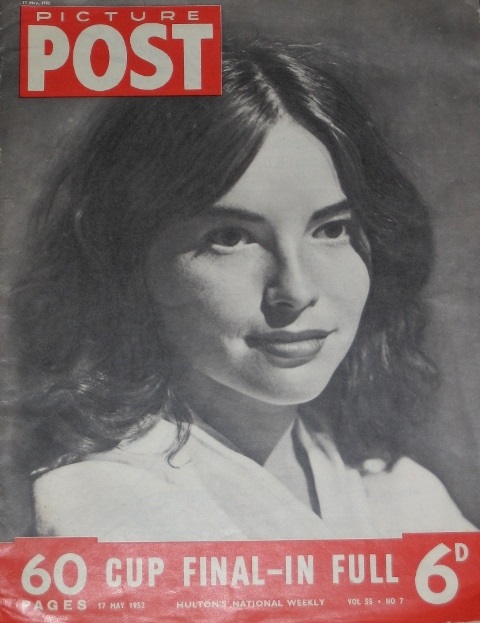 | Picture Post May 17, 1952, pp. 33-35 | "Should US Comics Be Banned?" |
 | Publisher's Weekly July 21, 1945 | Article about Lindsay Baird of Rewl Publications, who was found guilty of illegal use of paper, using 300 tons of paper to print comic books without a permit. |
| | Publisher's Weekly September 6, 1947 | "540 Million Comics Published During 1946" |
| | Publisher's Weekly May 1, 1954 | "The Hundred Million Dollar Market for Comics" |
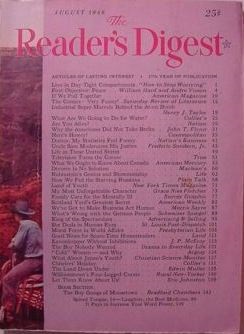 | Reader's Digest August, 1948, pp. 15-18 | Fredric Wertham The Comics . . . Very Funny! Condensed from Saturday Review of Literature Read it! |
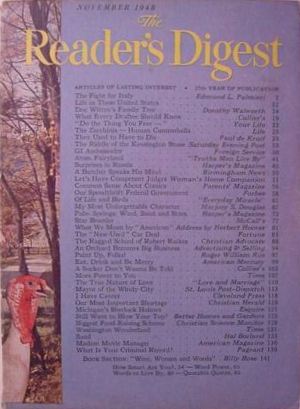 | Reader's Digest November, 1948, pp. 56-57 | Common Sense about Comics reprinted from Parents' Magazine |
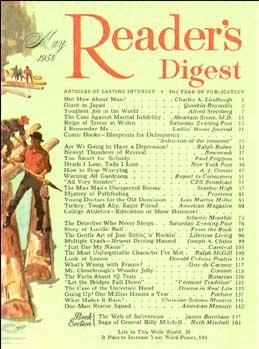 | Reader's Digest May, 1954 | Fredric Wertham "Comic Books - Blueprints for Delinquency!" Condensed from Seduction of the Innocent |
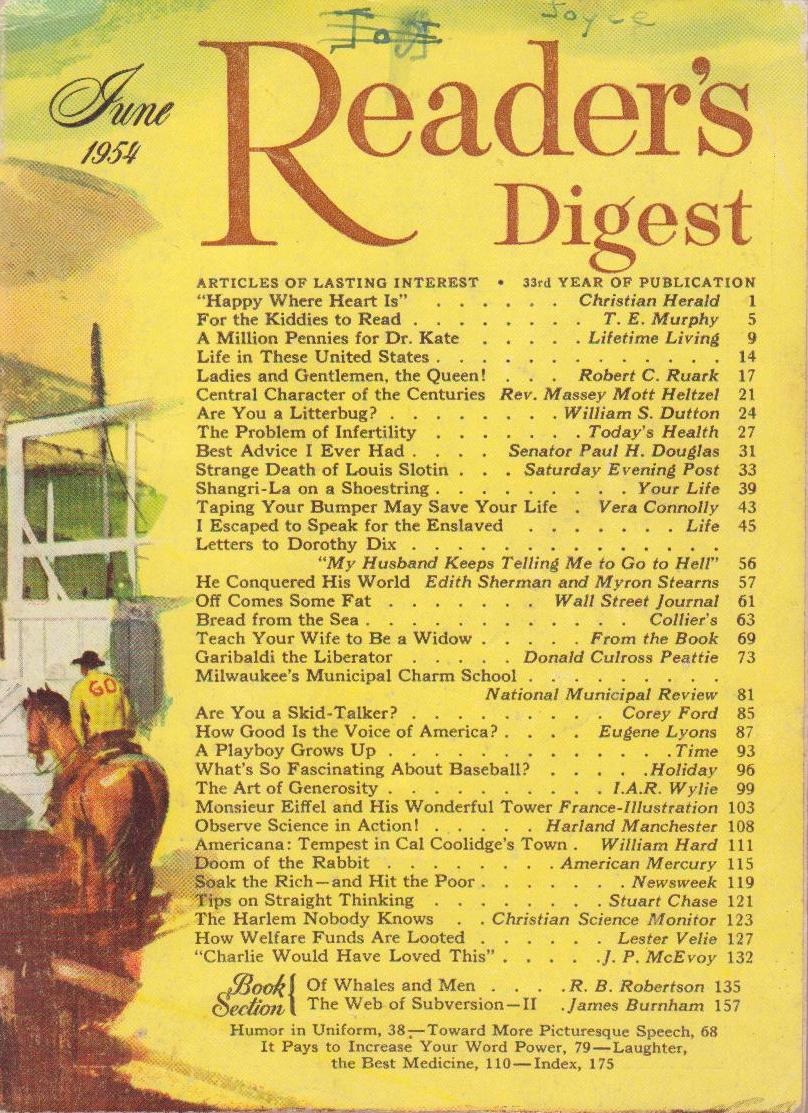 | Reader's Digest June, 1954 | T. E. Murphy. "For the Kiddies to Read" by the author who wrote the anti-comics articles in the Hartford Courant. Read it! |
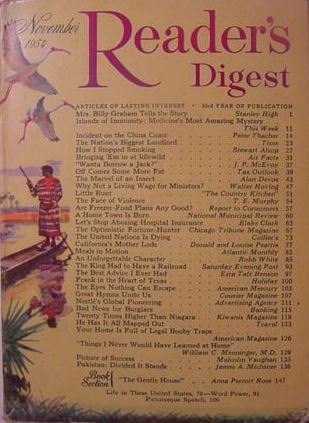 | Reader's Digest November, 1954 | T.E. Murphy. "The Face of Violence" anti-comics article. Cites several specific comic books: 1) A murderer who dissects his victims: "He made the first incision across the throat...", "Now I shall make an incision in the upper arm and separate the muscles so that you may identify them." 2) One comic book that shows how to make a cap gun into a deadly weapon. Another that shows how to make brass knuckles from milk-can handles. 3) The cover of Crime SuspenStories #22 |
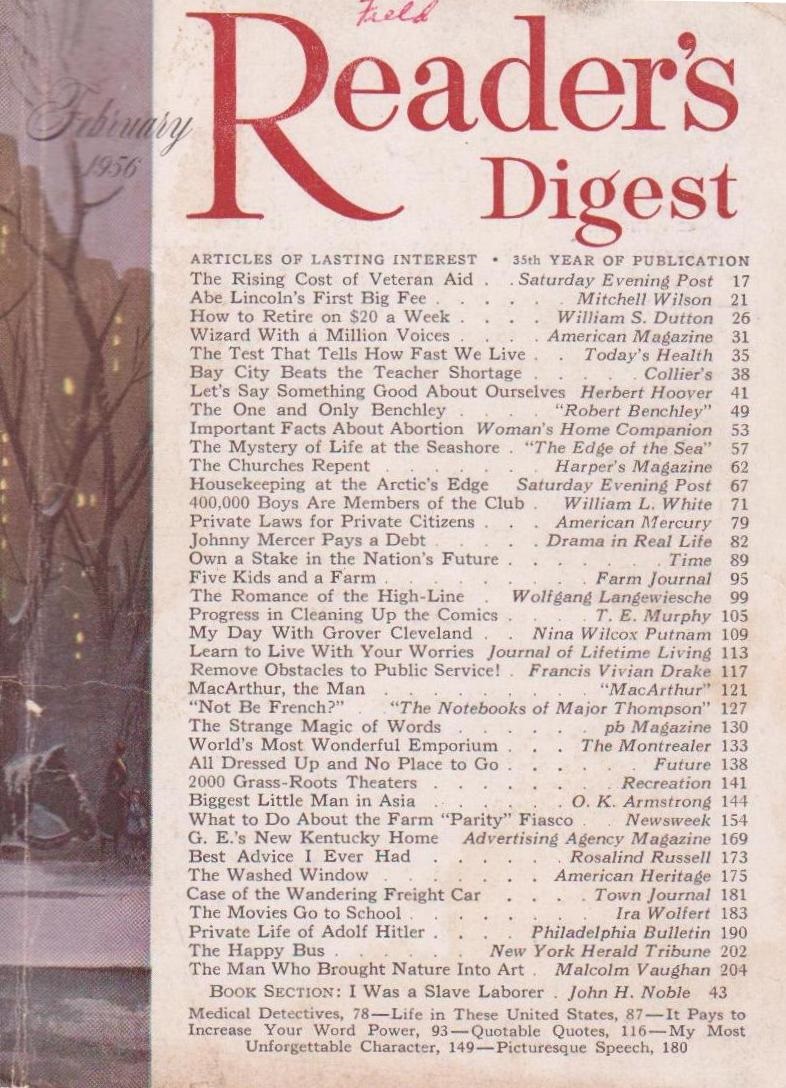 | Reader's Digest Feburary, 1956 | T.E. Murphy. "Progress in Cleaning Up the Comics" |
| | Religious Education November-December, 1956 | "The Curse of the Comic Books" |
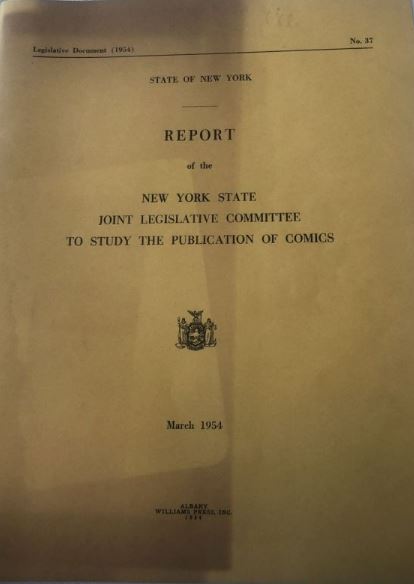 | Report of the New York State Joint Legislative Committee to Study Comic Books March, 1954 | Results of the legislature's investigation into comic books. |
| | Report of the Subcommittee to Investigate Juvenile Delinquency on the Judiciary 0 | US Senate document |
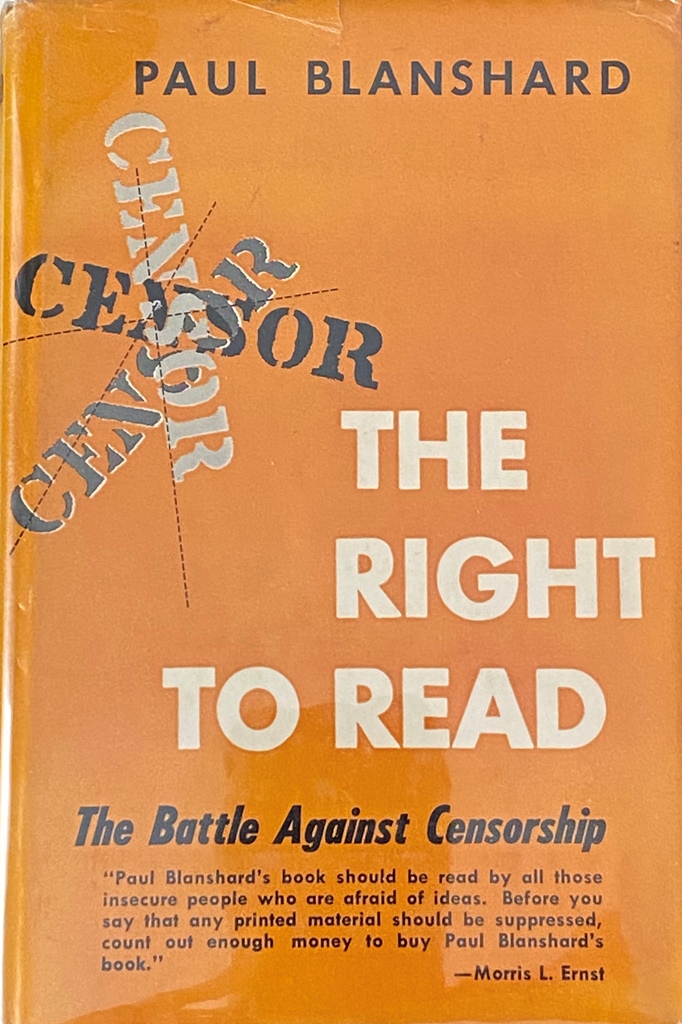 | The Right to Read: The Battle Against Censorship 1955 | 1955 book by Paul Blanshard, with a chapter on comic books. |
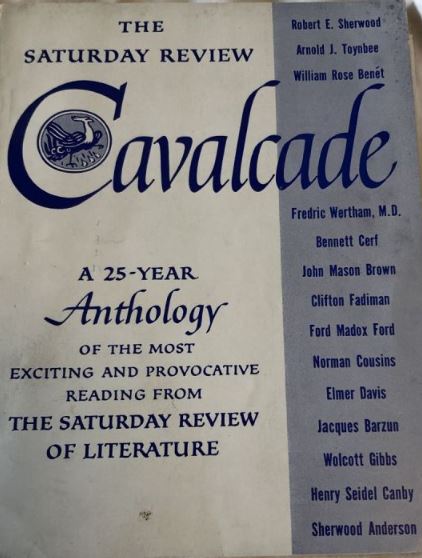 | Saturday Review Cavalcade 1950 | Digest-sized collection of Saturday Review articles, including a reprint of Wertham's "The Comics, Very Funny" |
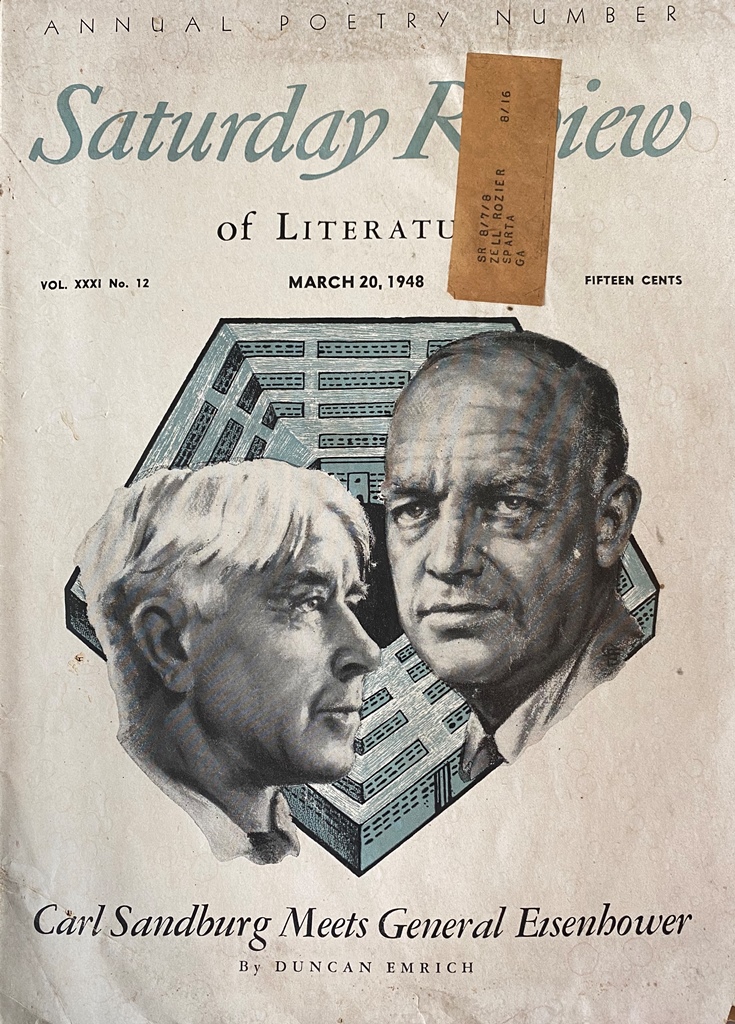 | Saturday Review of Literature March 20, 1948 | John Mason Brown The Case Against the Comics and Al Capp, The Case for the Comics |
 | Saturday Review of Literature May 29, 1948 | Fredric Wertham The Comics . . . Very funny! Read it! |
| | Saturday Review of Literature June 19, 1948 | Readers respond to Dr. Wertham's criticism of comic books. |
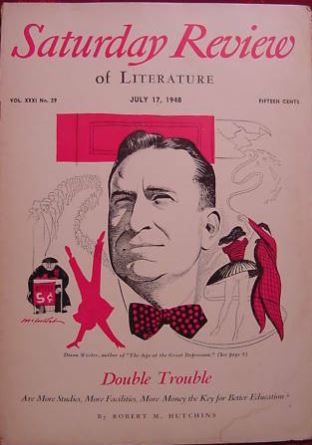 | Saturday Review of Literature July 17, 1948 | Readers respond to Dr. Wertham's criticism of comic books. |
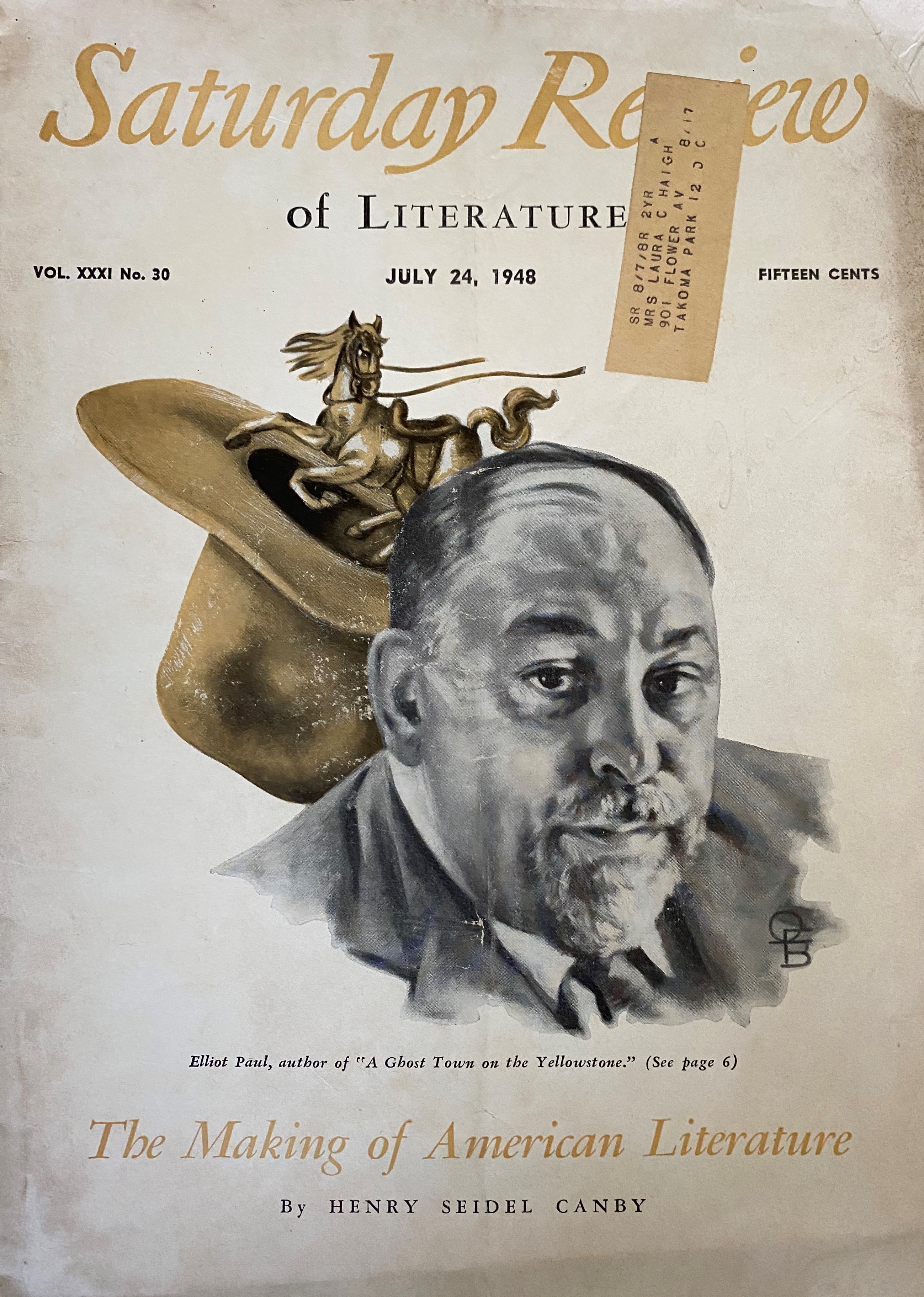 | Saturday Review of Literature July 24, 1948 | Readers respond to Dr. Wertham's criticism of comic books. The most eloquent response is the one from David Pace Wigransky. |
| | Saturday Review of Literature July 31, 1948 | Wertham corrects his statement, made in the May 29 issue, about Classics Illustrated #44. |
| | Saturday Review of Literature August 21, 1948 | Readers respond to David Pace Wigransky's defense of comic books. |
| | Saturday Review of Literature September 25, 1948 | One reader doubts the authenticity of David Pace Wigransky's letter, and is presented with evidence by the editors of SRL that Wigransky did indeed author the letter that was attributed to him. Another reader points to a newspaper story of torture committed by children, and concludes that this proves the need to ban comic books. |
| | Saturday Review of Literature October 16, 1948 | In the letters column, a reader urges the woman who was pushing for a comic book ban to use her brain. |
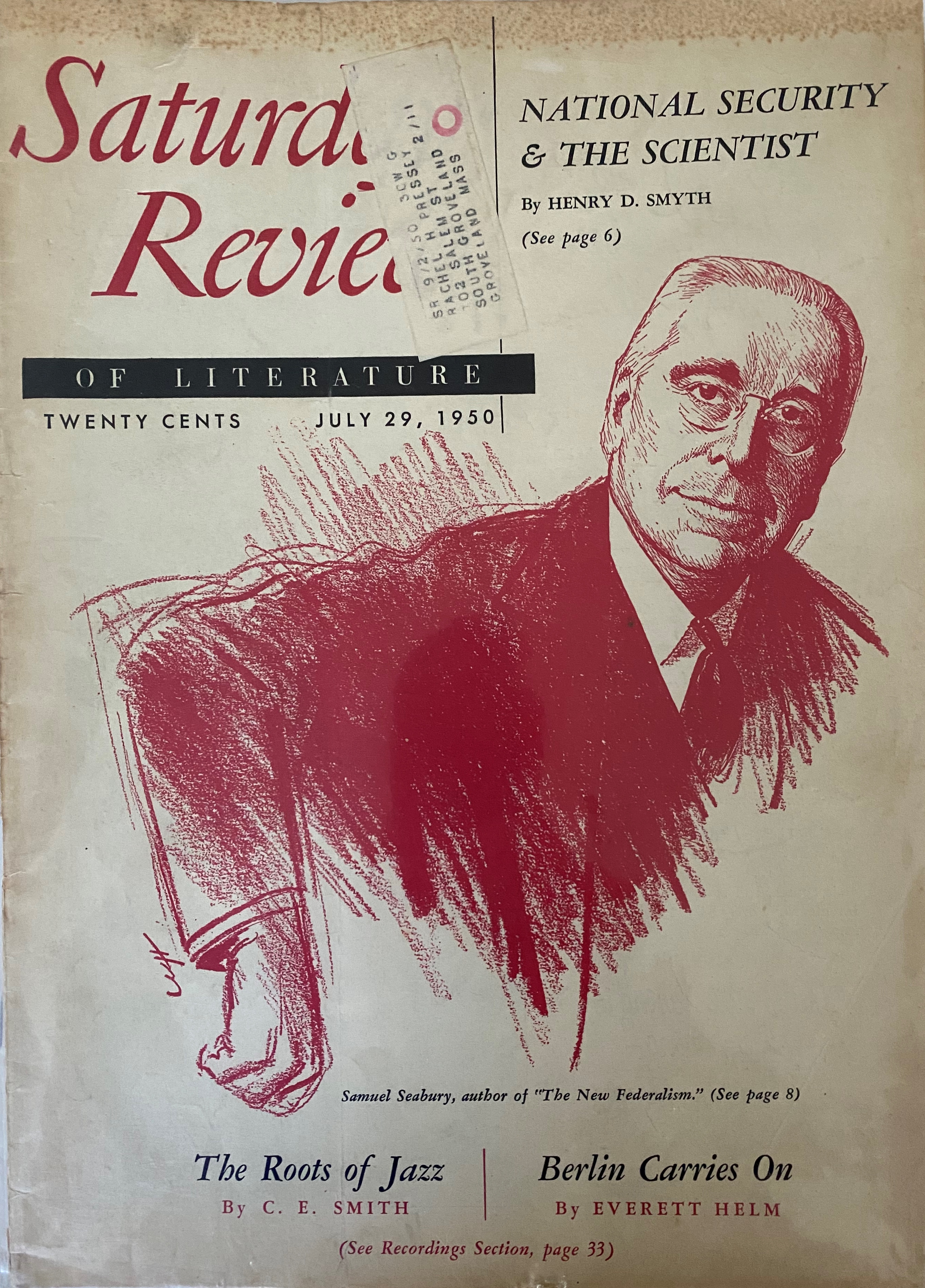 | Saturday Review of Literature July 29, 1950, pp. 22-24 | "Knock Knock Knock" by John Mason Brown criticizes Stories by Famous Authors Illustrated |
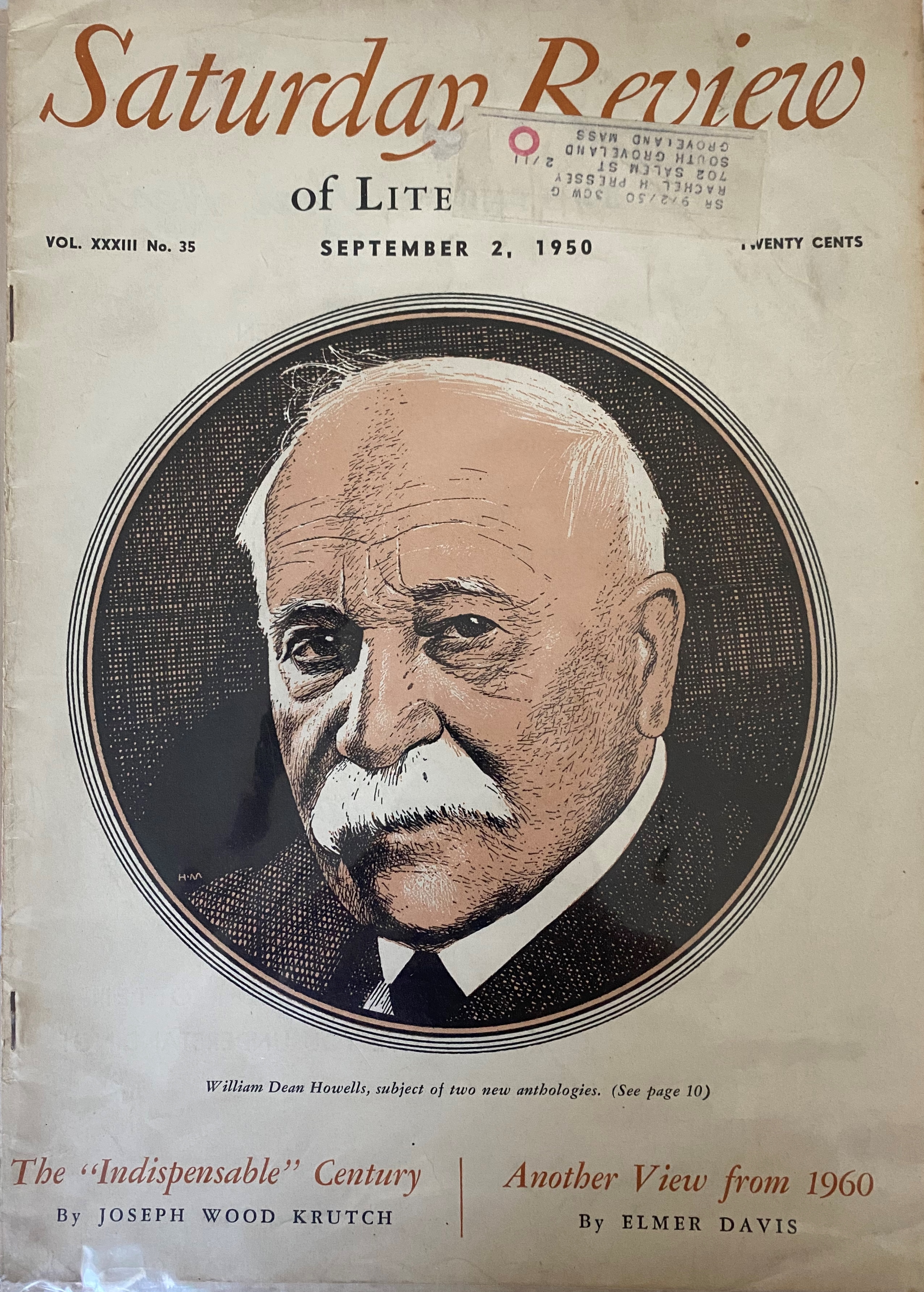 | Saturday Review of Literature September 2, 1950, p. 26 | Contains letters to the editor in response to John Mason Brown's July 29 article, including a letter from Dr. Wertham. |
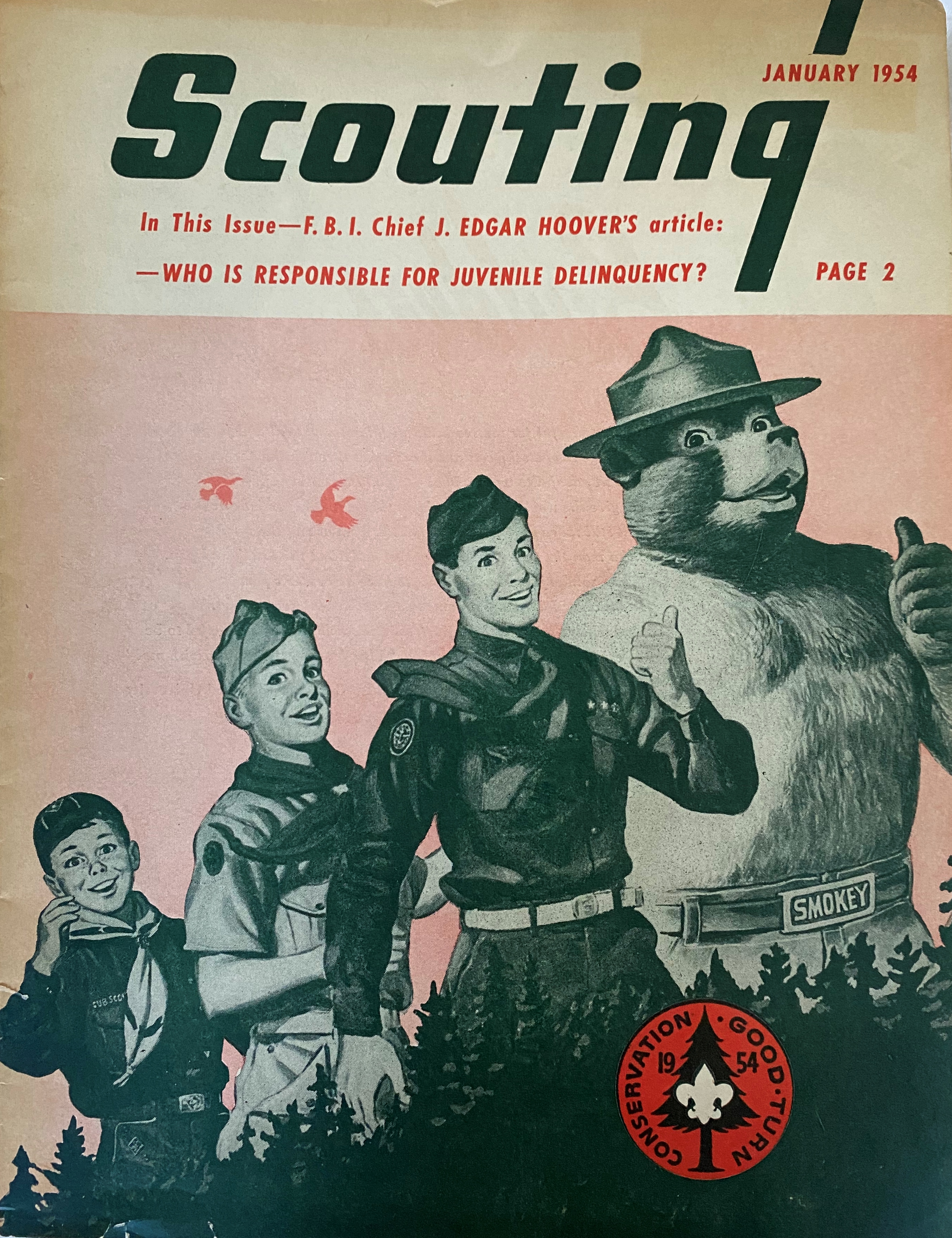 | Scouting January, 1954, p. 3+ | "Who is to Blame for Juvenile Delinquency?" by J. Edgar Hoover, an article that stands out because it makes no mention of comic books. |
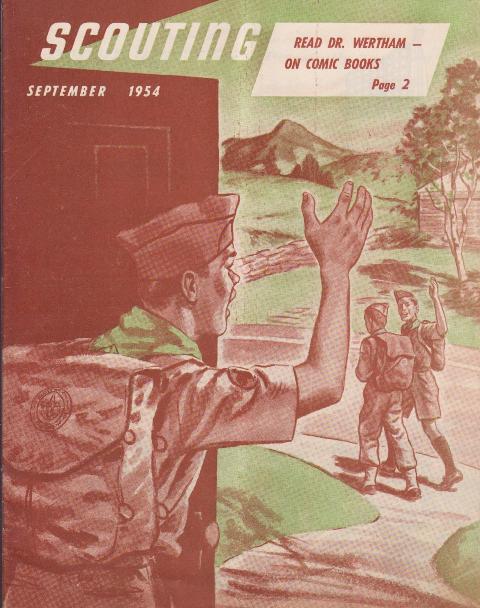 | Scouting September, 1954 | Anti-comics article |
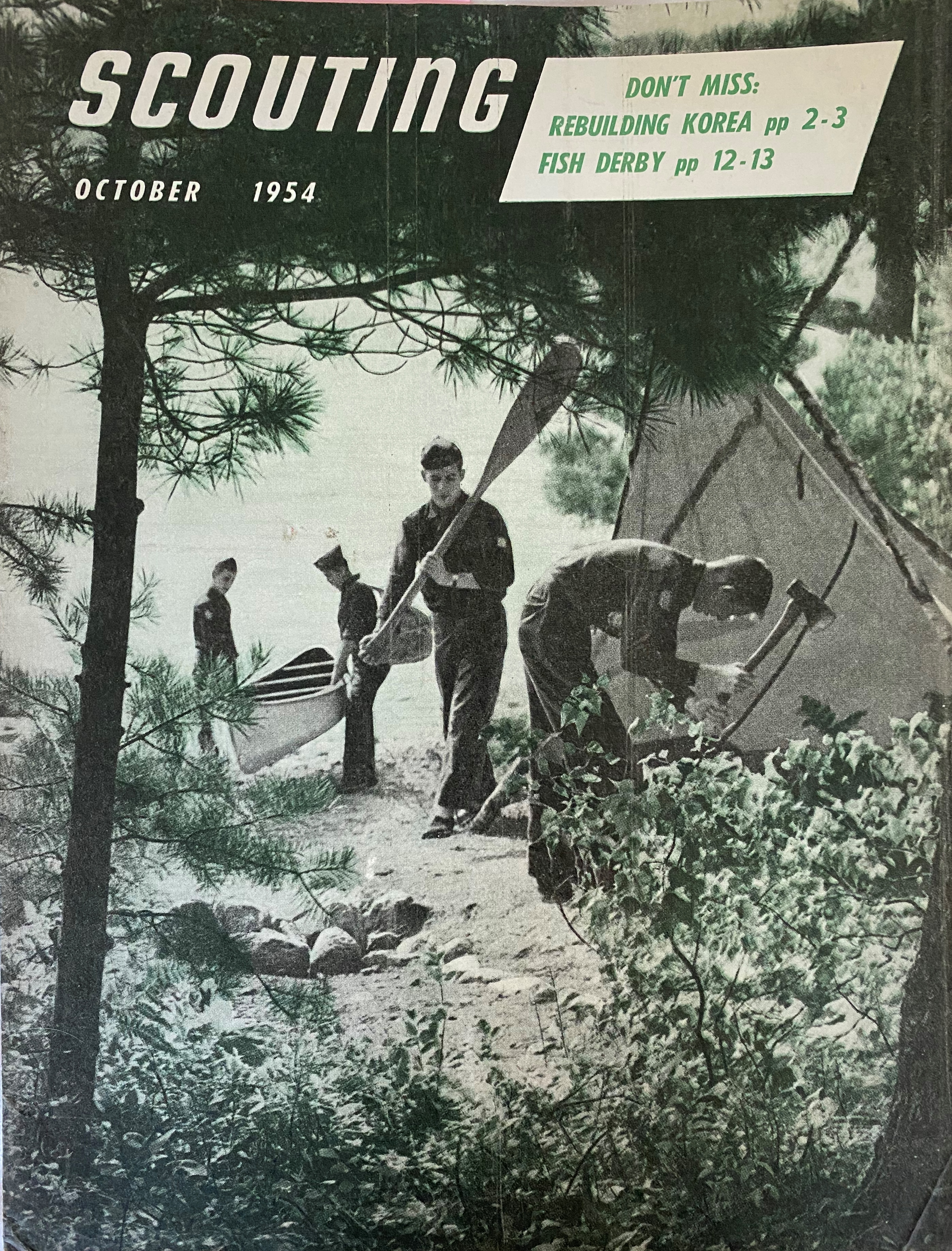 | Scouting October, 1954, p. 17 | "Comic Books Ain't Comical" |
| | Sociology and Social Research Vol 33, March-April 1949, pp. 279-284 | Thomas F. Hoult. "Comic Books and Juvenile Delinquency" |
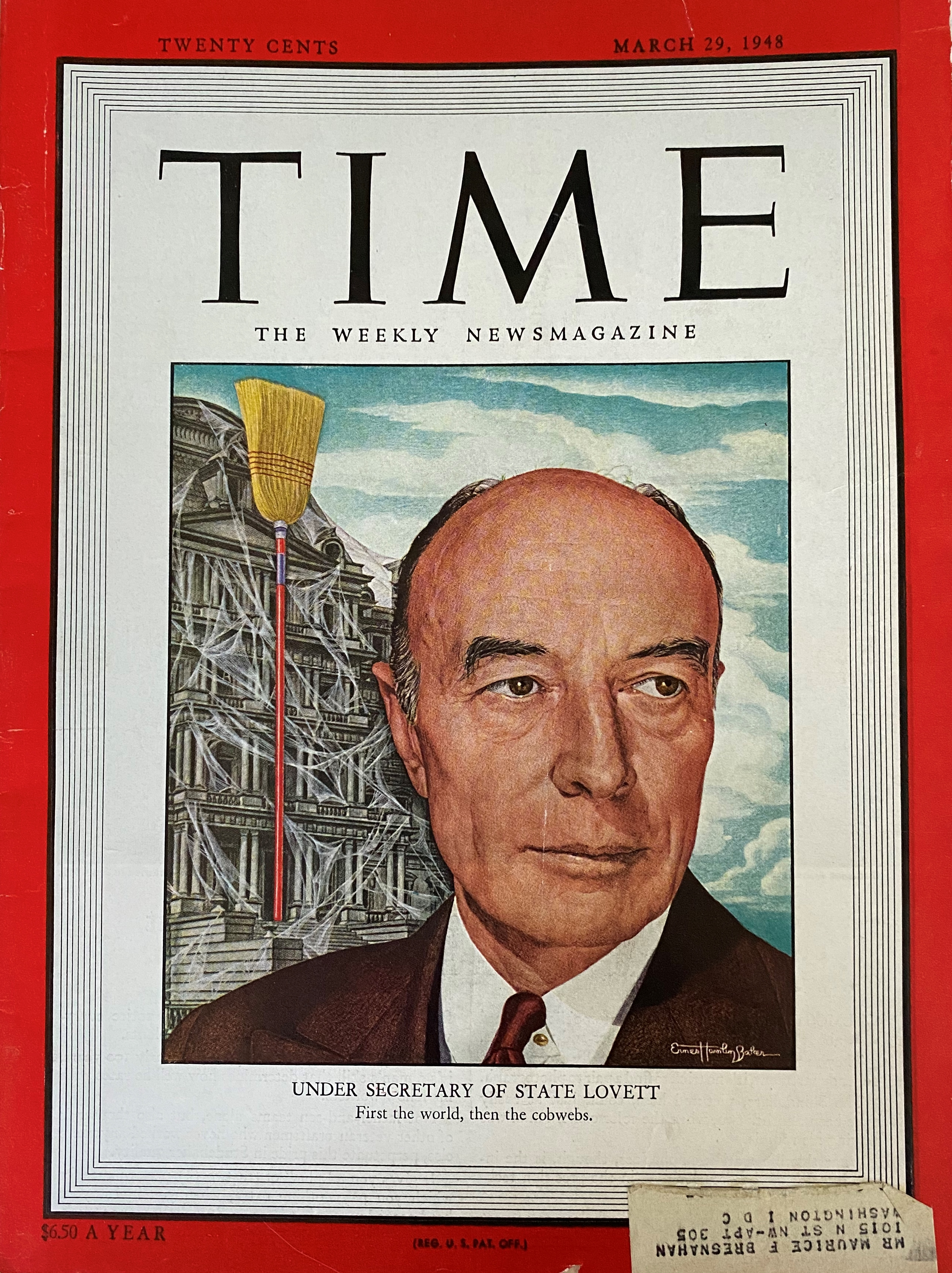 | Time March 29, 1948, pp. 66, 68 | "Puddles of Blood" article about the "Psychopathology of Comic Books" symposium |
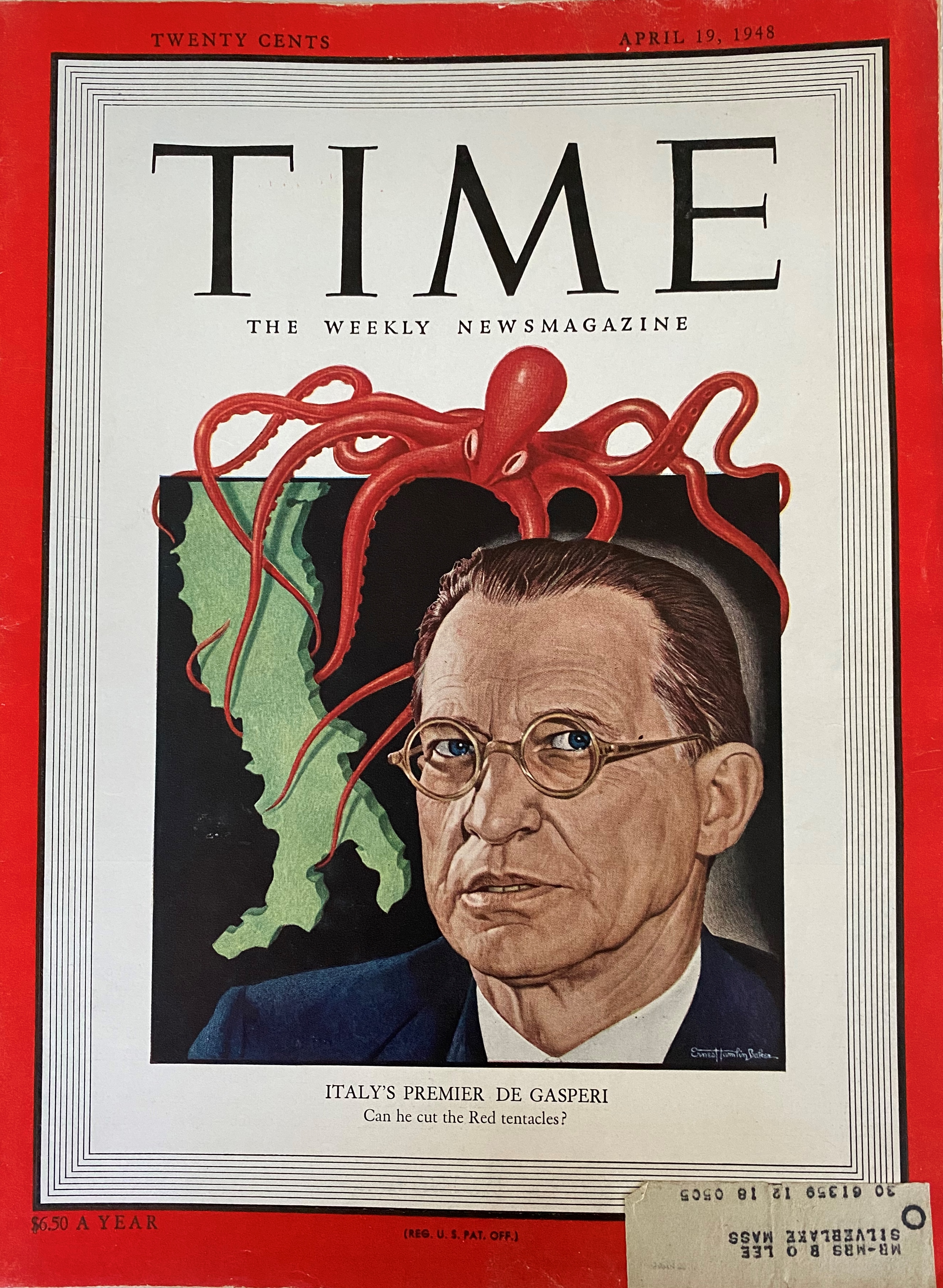 | Time April 19, 1948, pp. 11-12 | Letter to the editor challenging Dr. Wertham's assertion that comic books are dangerous. |
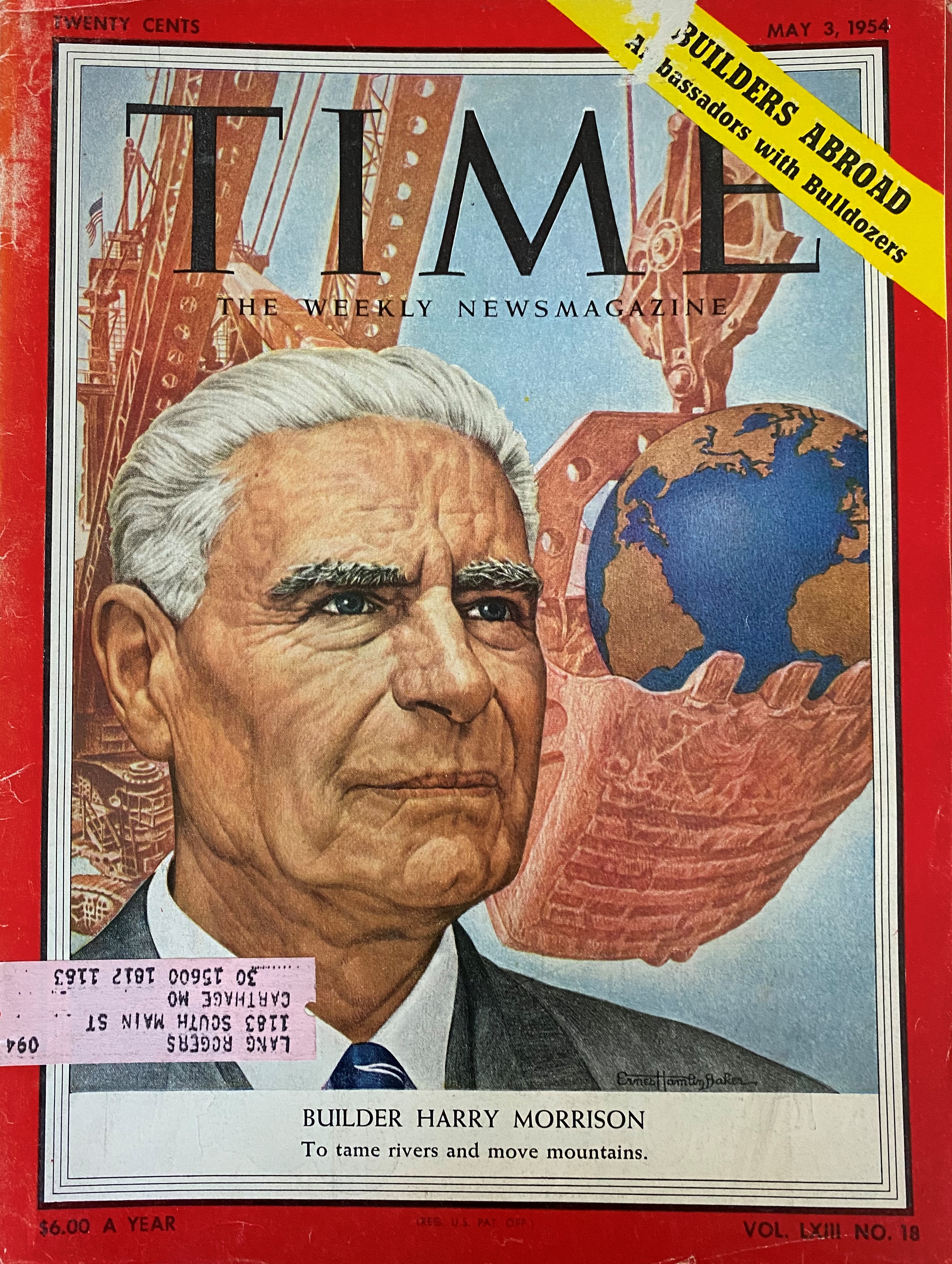 | Time May 3, 1954, p. 78 | "Horror Comics" small article about Kefauver investigation. Article cites Crime SuspenStories #22 cover. |
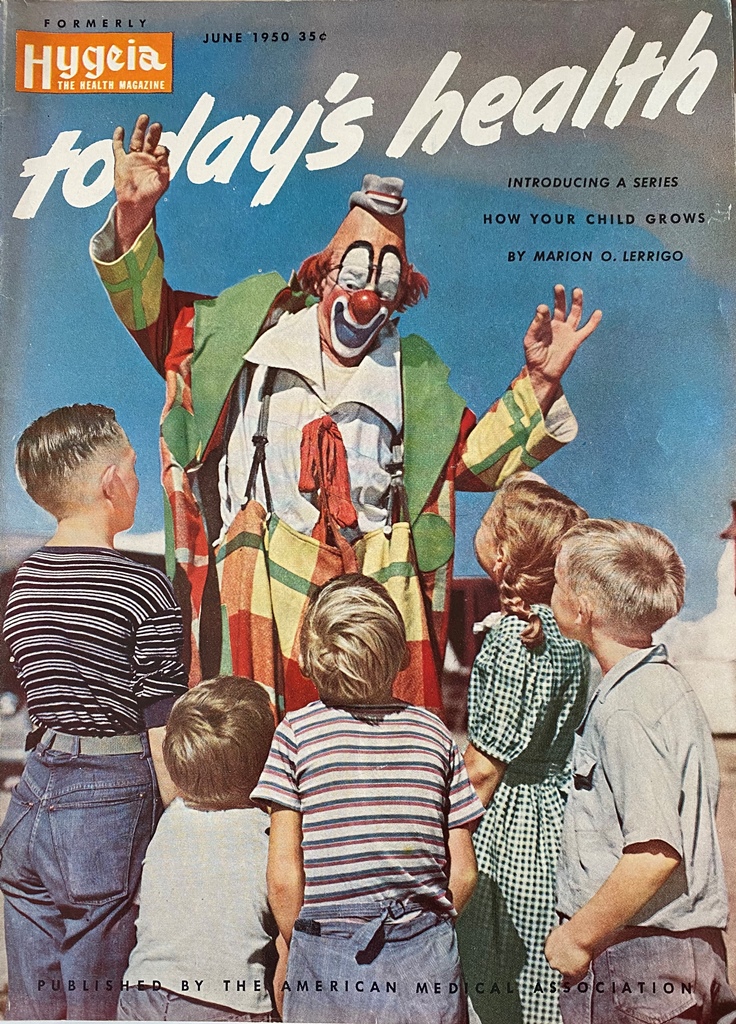 | Today's Health June, 1950, pp. 20-21+ | "Are Comic Books a Menace" by Thomas and Lois Hoult |
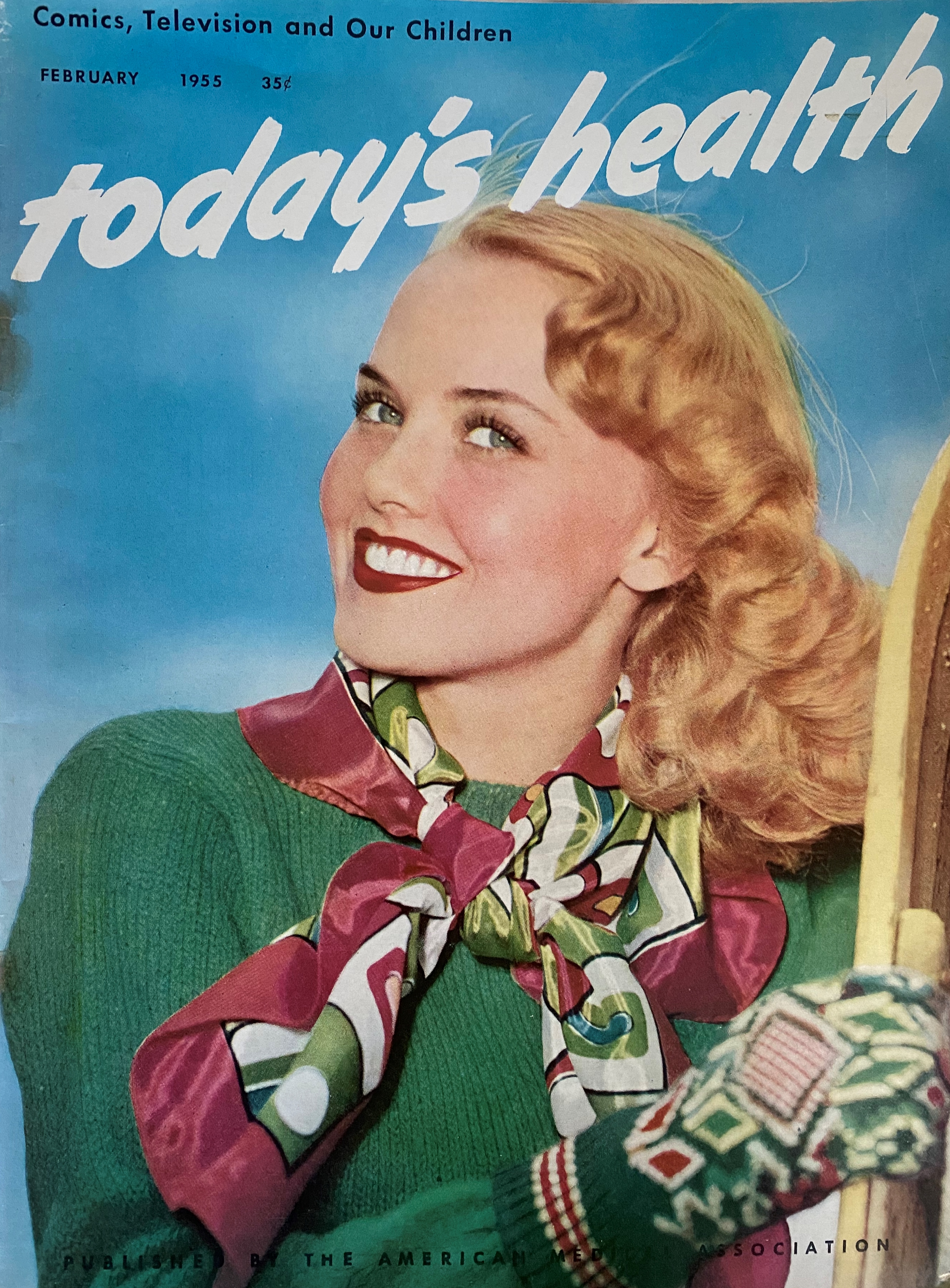 | Today's Health February, 1955 pp. 18-21 | "Comics, Television, and Our Children" by Paul Witty |
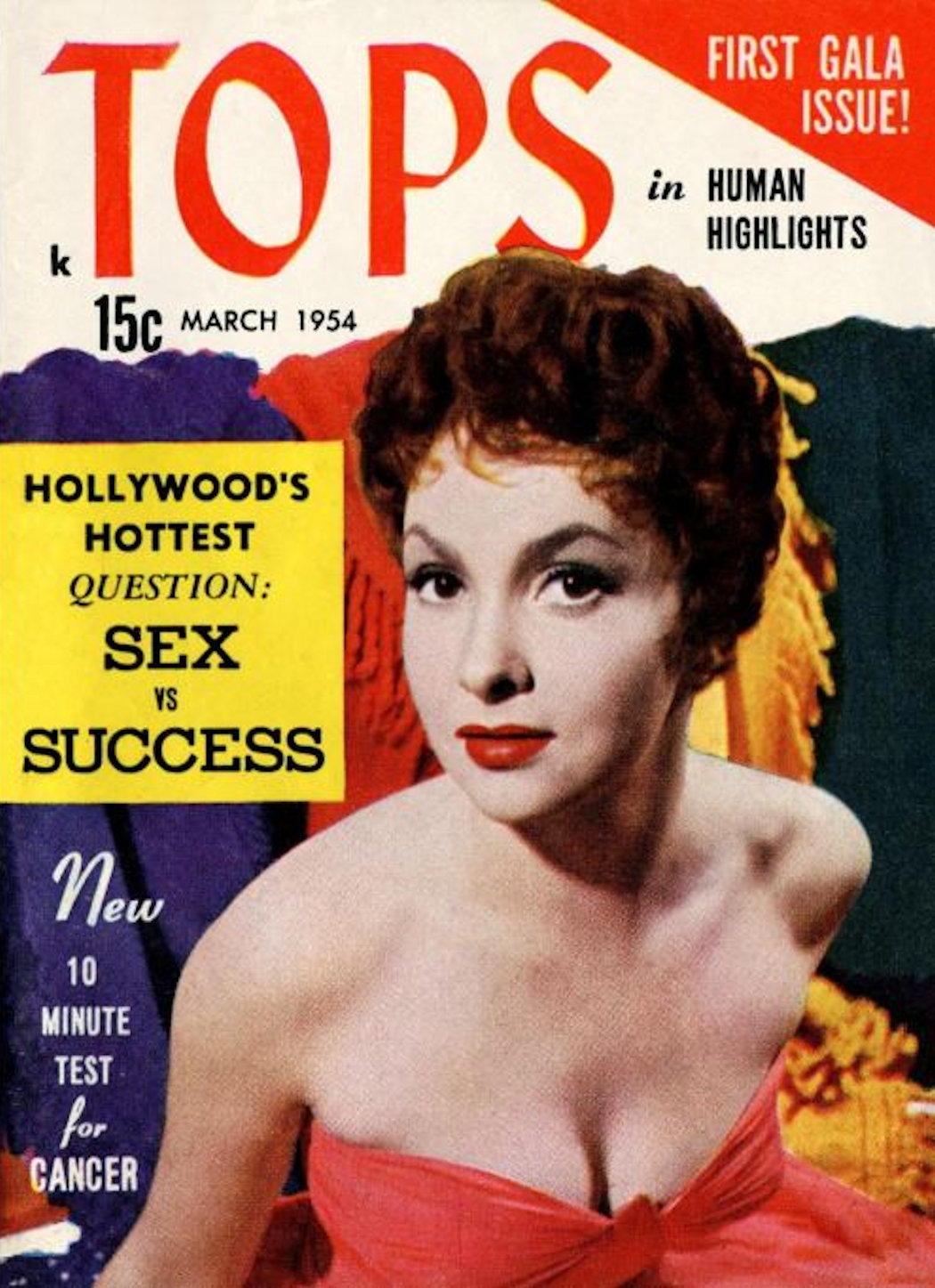 | Tops March, 1954, pp. 38-39 | "Jekyll-Hyde of the Comics" short article about Bill Gaines, indicating that he has had financial success with, and criticism for, EC's horror comics. The article also notes EC's stories that are "well written, well-plotted, ruthless in their revelation of the kind of horror that lies just below the surface of life in modern America." Includes four Wally Wood panels from Shock SuspenStories #11. Read it! |
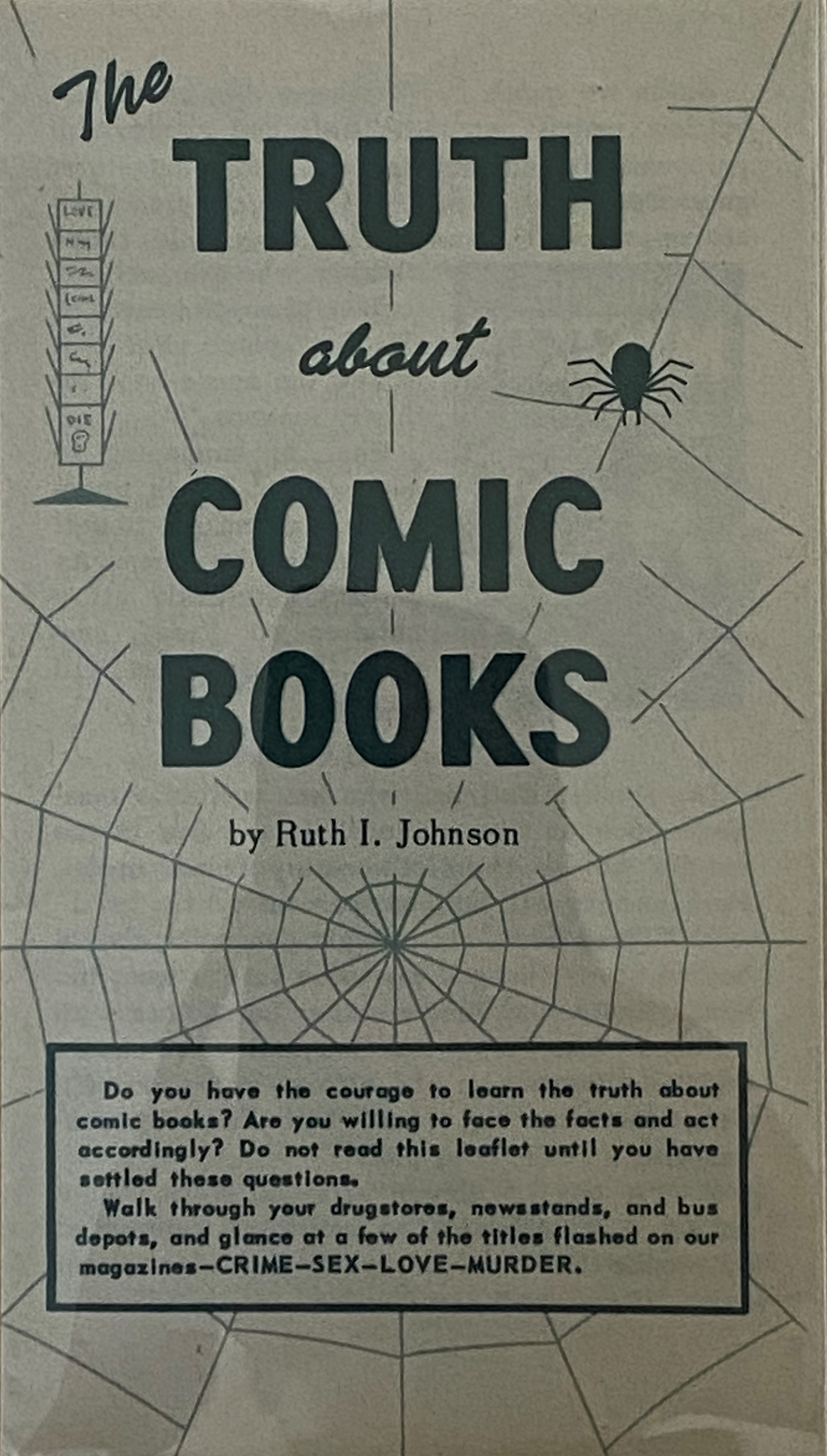 | The Truth About Comic Books circa late 1953/early 1954 | Anti-comics pamphlet by Ruth I. Johnson. This religious tract quotes from Wertham's Ladies' Home Journal article (dated November, 1953).
It notes that Dr. Wertham "has written a complete book about the subject," but indicates that its quotes are "reprinted by special permission form the Ladies' Home Journal. Copyright 1953, by Fredric Wertham." If SOTI had been published at the time this tract was printed, it seems likely the quotes would have been from SOTI (not LHJ) and credit would have been given to Rinehart. Based on that, it would seem that this was published in late 1953 or early 1954, prior to the publication date of SOTI (April, 1954). Many thanks to eBayer Comicstew (Stewart Silver) for discovering this previously-unknown piece of comic book history and for providing this information! Thanks also to John Navroth, of Fear in Four Colors, for submitting corrections. |
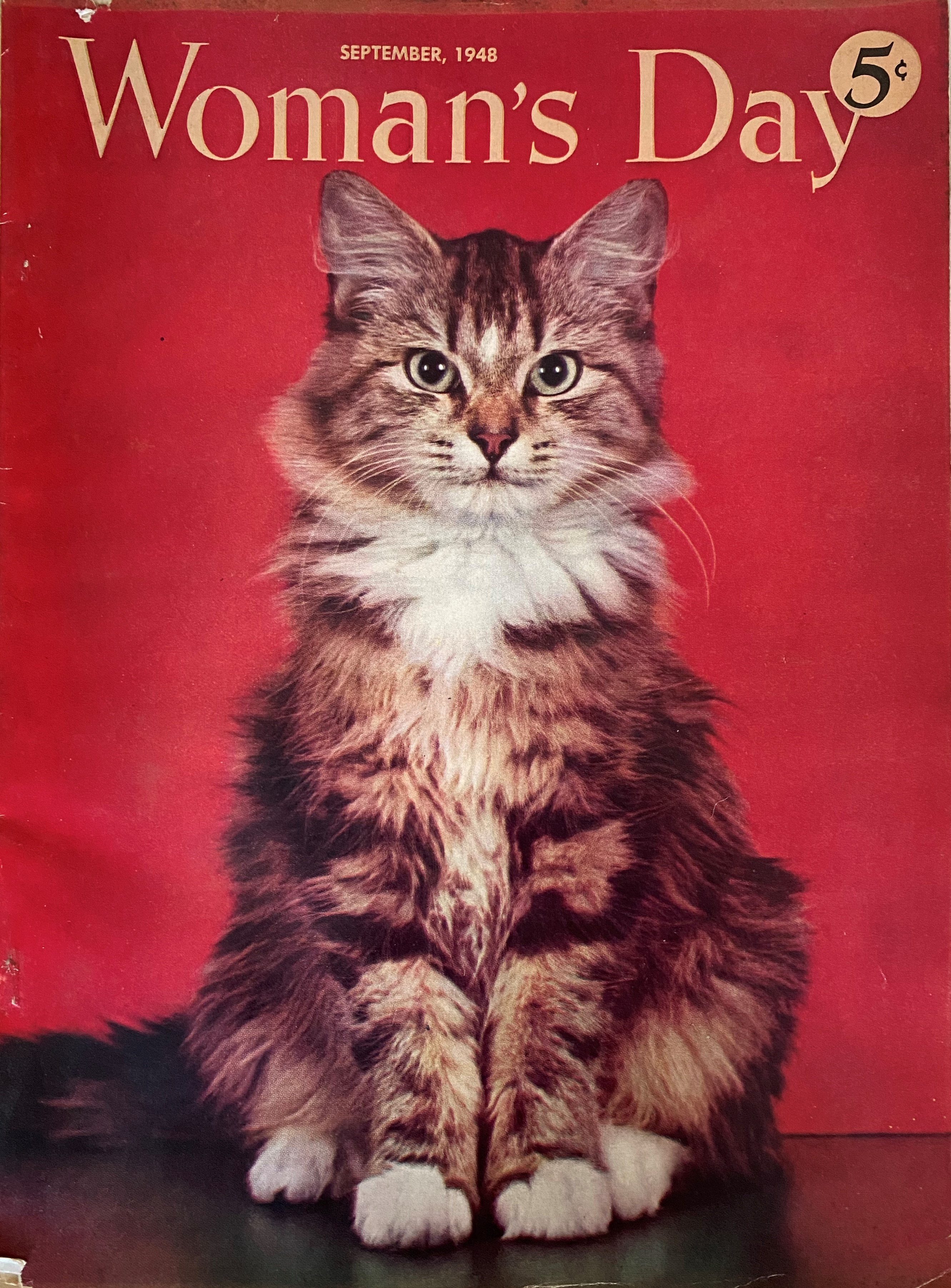 | Woman's Day September, 1948, p. 44-45+ | "What About the Comic Books?" by Sidonie Matsner Gruenberg, Director, Child Study Association of America |
| | Writer's Digest September, 1944 | Mort Weisinger article. |
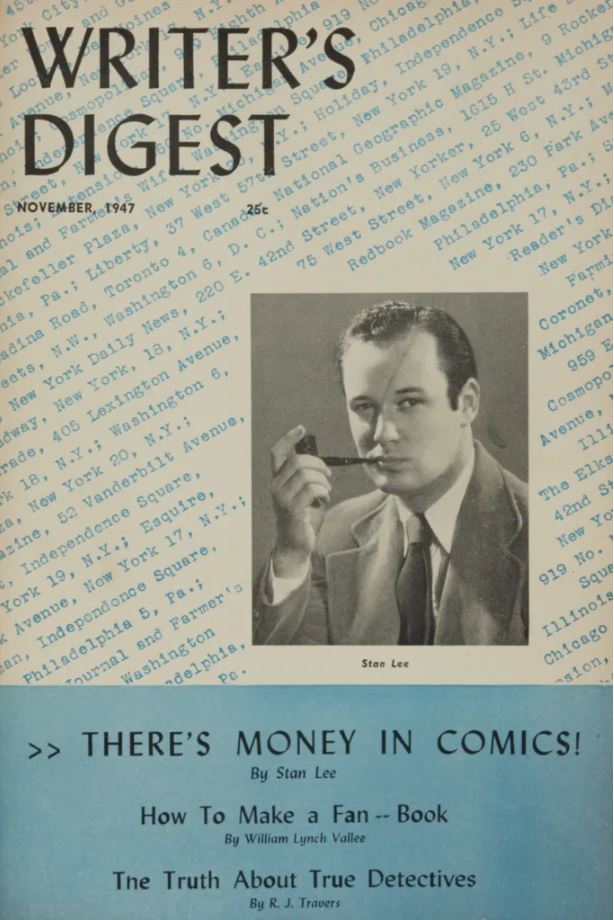 | Writer's Digest November, 1947 | "There's Money in Comics!" by Stan Lee! Read it! |
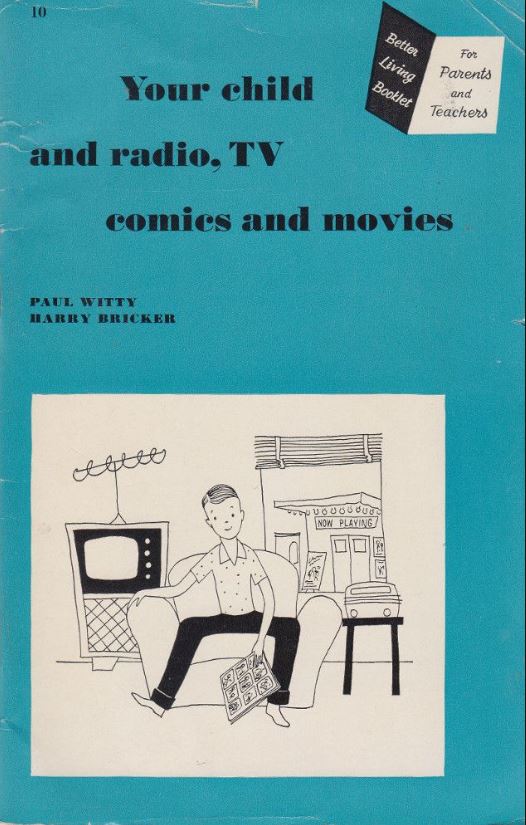 | Your Child and Radio, TV, Comics, and Movies 1952 | Better Living Booklet #10 by Paul Witty and Harry Bricker. |